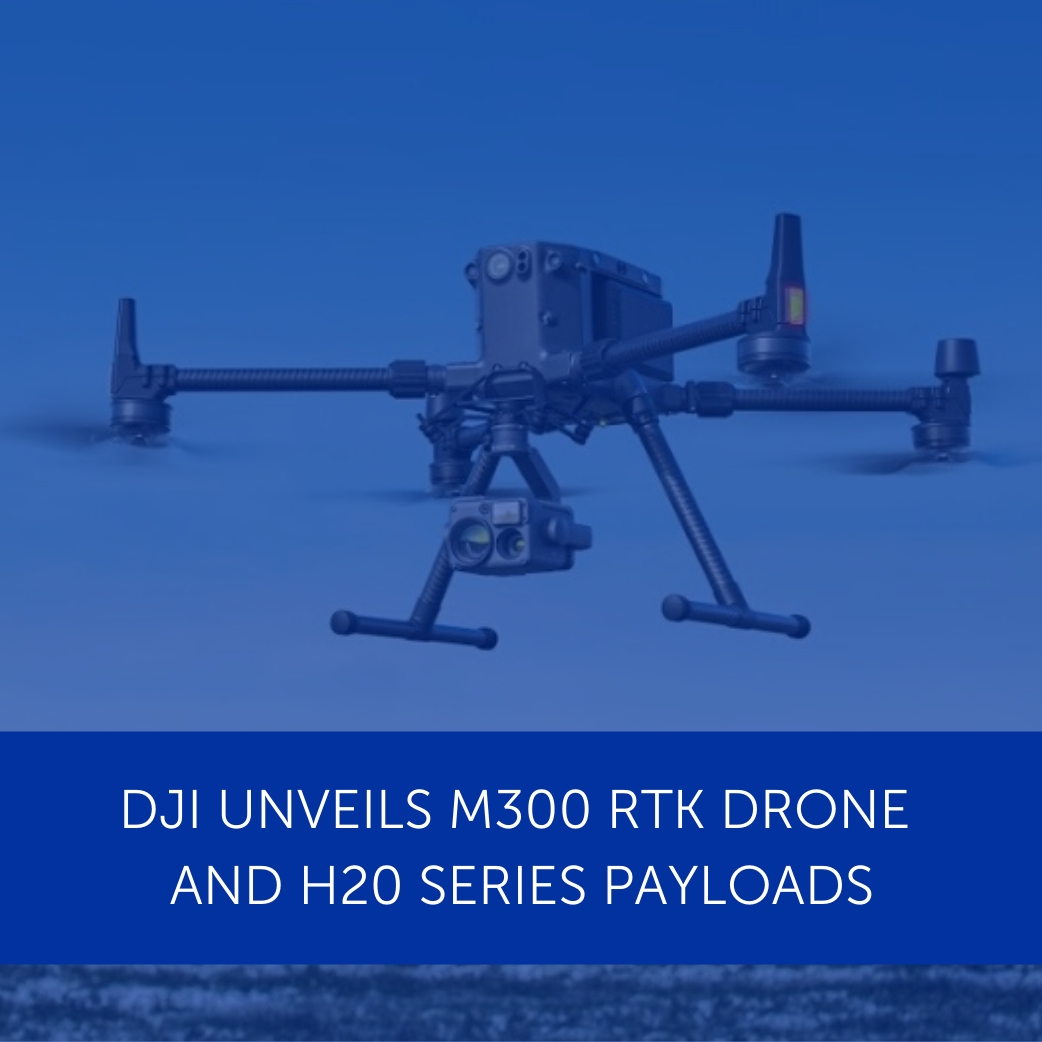
Updated on • 17 Sep 2024
DJI M300 RTK Drone Review
DJI has launched the M300 RTK and H20 Series payloads for commercial drone missions. Pre-order yours from Heliguy. ... Read More
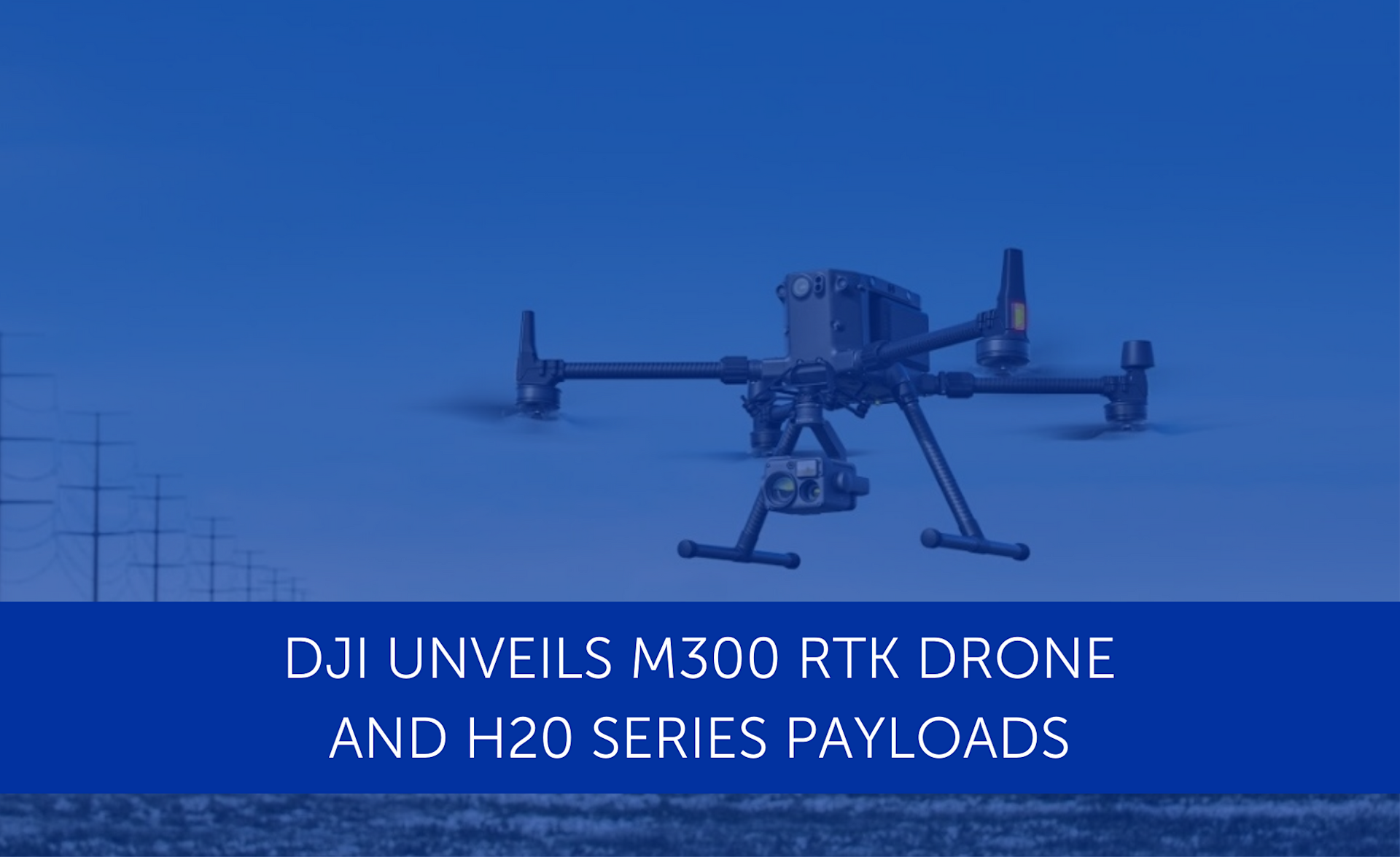
DJI launches M300 RTK drone and H20 Series payloads for commercial missions;
The M300 RTK has a 55 minute maximum flight time, is IP45 rated, can carry three payloads, allows for dual pilot control, and has advanced safety features;
Introducing the H20 and H20T sensors - hybrid camera solutions offering thermal, zoom, wide-angle and laser rangefinder capabilities;
Purchase yours at HELIGUY.com™.
DJI has unveiled the M300 RTK - a next-generation commercial drone platform which offers enhanced flight performance, unrivalled safety features, and rapid deployment.
With a 55 minute maximum flight time, advanced AI capabilities, six directional sensing and positioning and the ability to carry three payloads - this rugged and robust IP45-rated aircraft sets a new standard, combining intelligence with reliability.
Launching alongside the drone is the Zenmuse H20 and H20T payloads - two new hybrid camera solutions offering multi-sensor capabilities, including zoom, thermal and laser rangefinder.
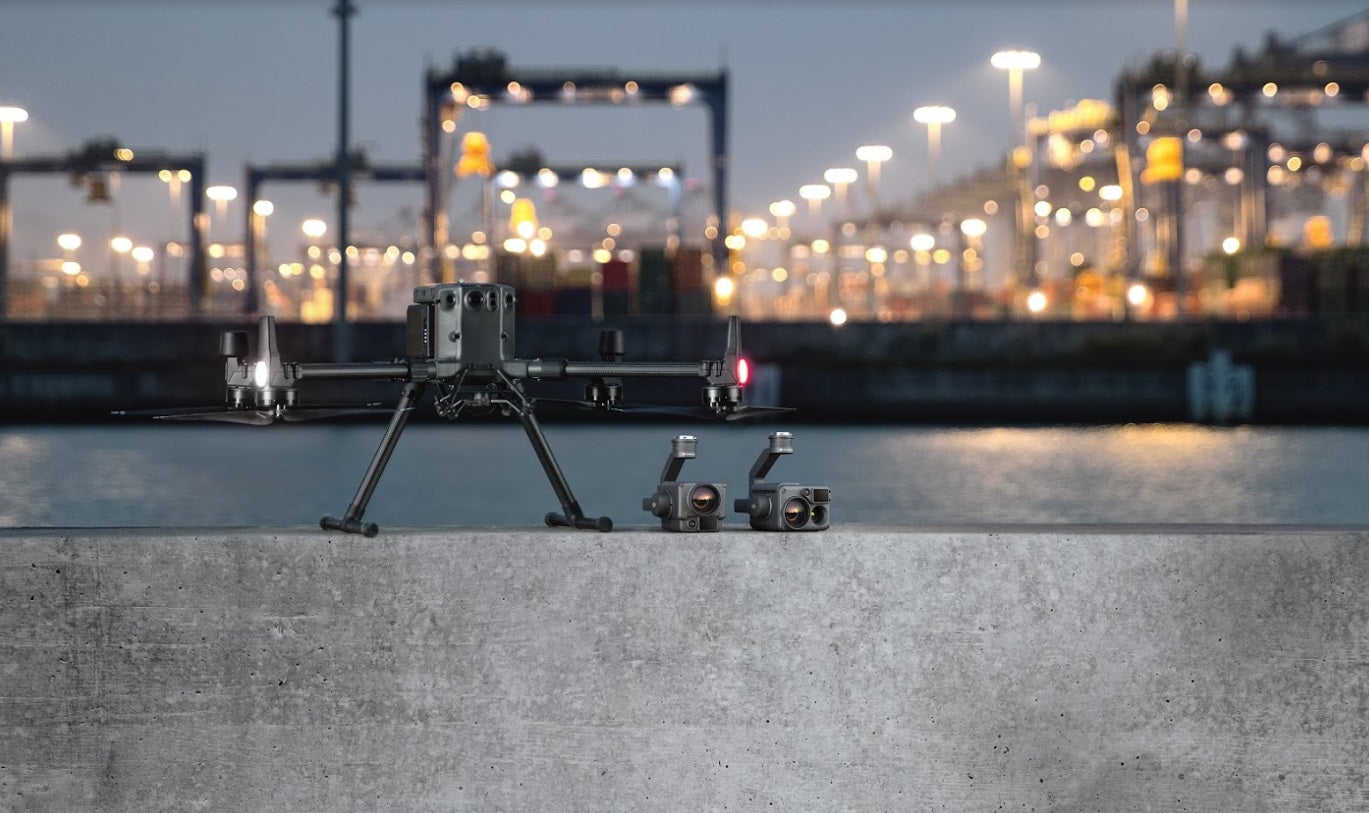
The versatile DJI 300 RTK and its dedicated sensors can be utilised across a range of enterprise verticals, including firefighting, search and rescue, law enforcement and critical enterprise, as well as for industry inspections in the energy and oil and gas sectors.
Here's a look at the key features of the M300 RTK and H20 Series.
M300 RTK | H20 Series |
55 minute maximum flight time | 12MP Wide Camera |
15km Max Transmission | 20MP zoom camera; 23x hybrid optical zoom |
Rapid deployment | Radiometric thermal camera - 640x512px |
IP45 Rating | Laser rangefinder 1200m |
Six directional sensing and positioning | IP44 Rating |
UAV Health Management System | -20C to 50°C Operating temperature |
Hot-swappable battery | Active image stabilisation and EIS |
Advanced Dual Control | Night Scene mode |
The M300 RTK sets a new standard for commercial drone missions, and builds on the solid foundation established by the popular M200 Series. To find out the key differences between the M300 RTK and the M200 Series V2, read out in-depth blog by clicking here.
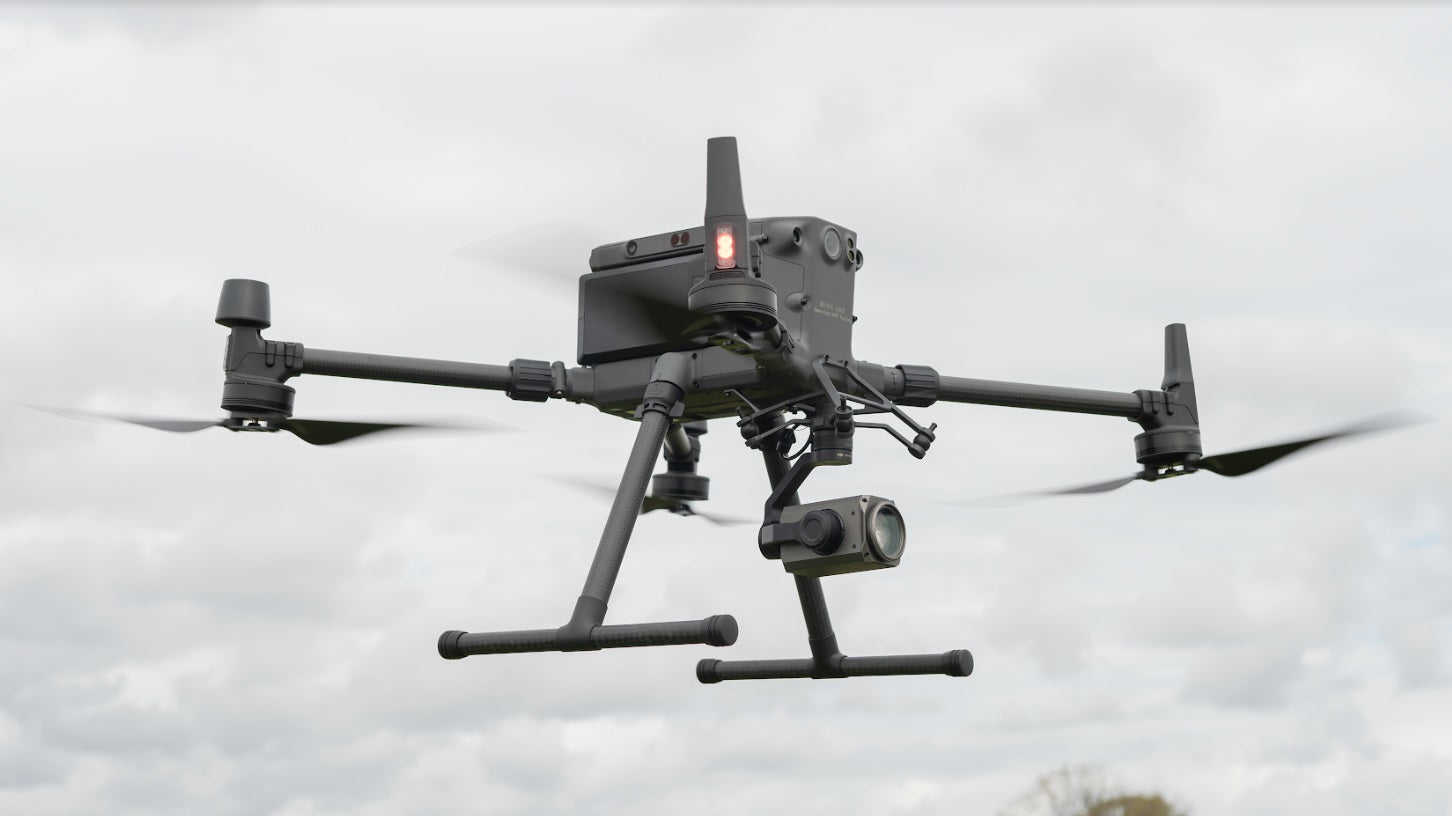
The M300 RTK and the Zenmuse H20 Series are available from HELIGUY.com. Click here for more details.
In this Heliguy Insider blog, we'll take a look at the key specifications and features of DJI’s most powerful and intelligent drone to date.
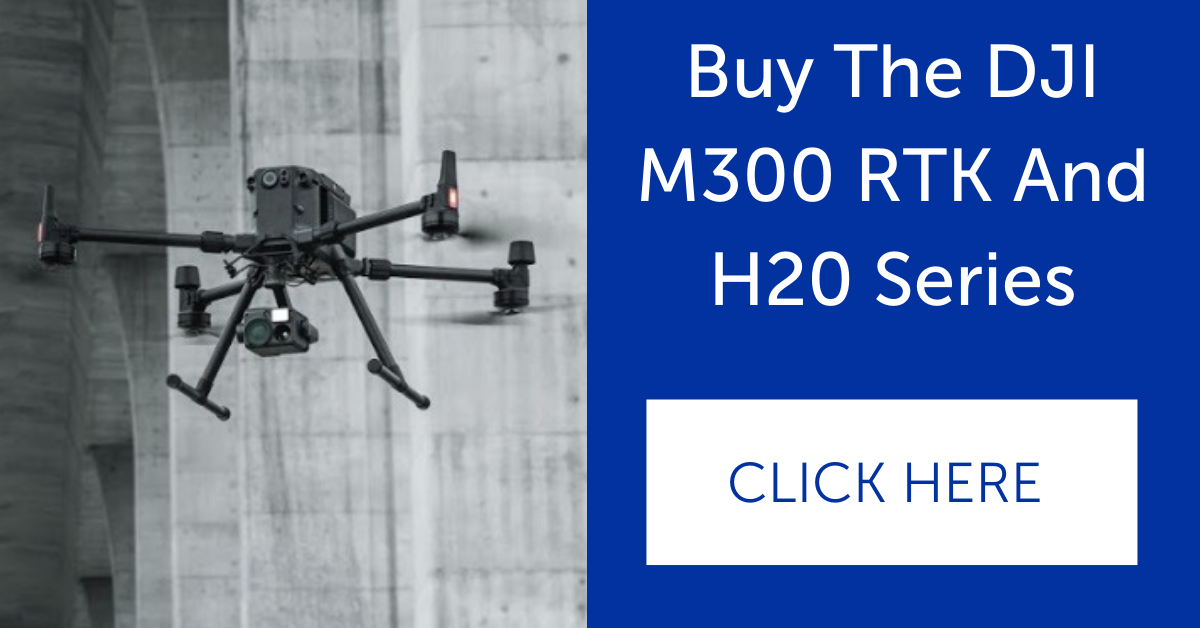
DJI M300 RTK: Flight Time And Speed
The DJI M300 RTK sets a new standard for drone capability and reliability. The aircraft’s refined airframe and propulsion system design ensures a more efficient and stable flight, even in harsh and difficult conditions.
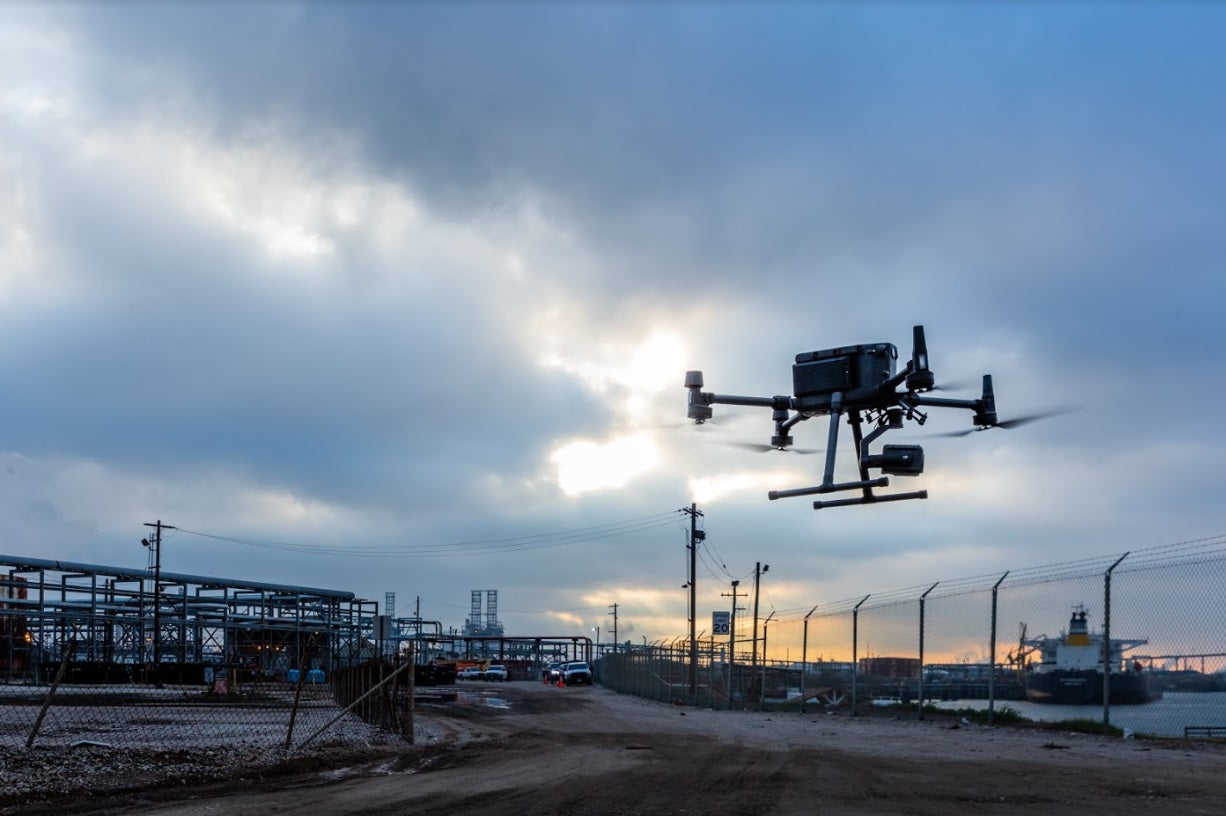
The drone’s maximum flight time is 55 minutes (without payload) or 31 minutes when it is at its maximum take-off weight of 9kg. When carrying the new H20T sensor, the M300 RTK can stay airborne for up to 43 minutes, or 45/46 minutes when integrated with either an XT2 or Z30.
Payload | Total Weight | Flight Time |
MTOW | 9kg | 31 min |
H20 + XT2 | 7.52kg | 39 min |
H20T | 7.03kg | 43 min |
H20 | 6.89kg | 45 min |
XT2 | 6.83kg | 45 min |
Z30 | 6.76kg | 46 min |
XT S | 6.59kg | 48 min |
No Payload | 6.3kg | 55 min |
The DJI M300 RTK has a maximum speed of 23m/s - which equates to just over 51mph and in almost 83kph. Sticking with speed, the M300 RTK has a maximum descent speed of 7m/s, ensuring a quick landing. It can also achieve a 7,000m service ceiling.
DJI 300 RTK: Can It Fly In The Rain?
The short answer is yes, but there are limits!
The DJI M300 RTK comes with an IP45 rating, compared to the IP43-rated M200 Series, meaning this new-release aircraft can withstand more extreme conditions and handle wetter environments better.
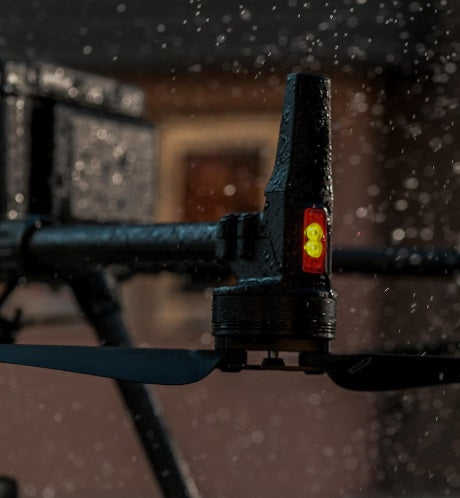
That's not to say that the drone is completely waterproof - because it isn't - but the IP45 rating does mean that the M300 RTK is protected against low pressure jets of water (or splashing water) from any angle - as our IP table shows below.
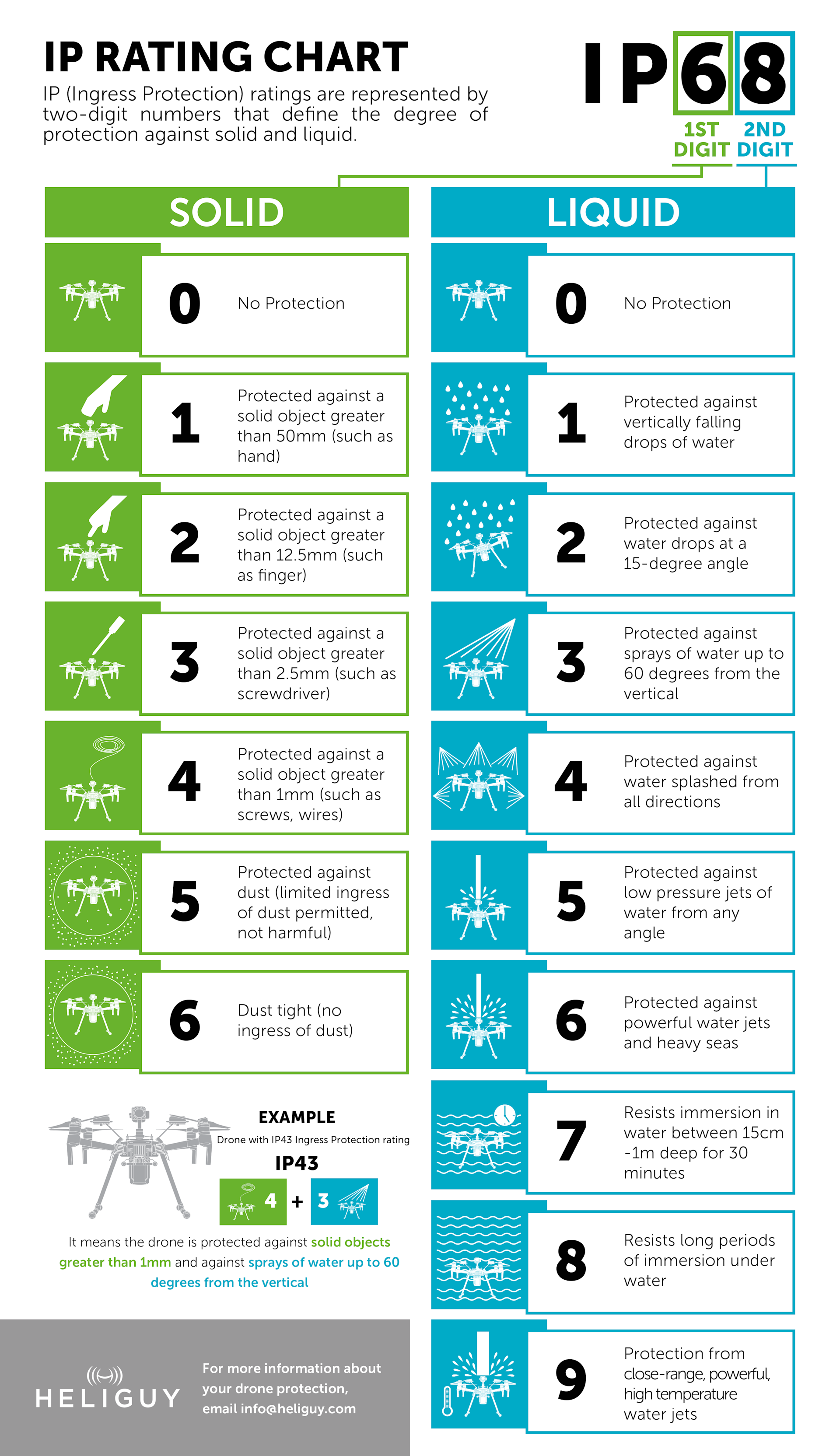
In fact, DJI has stated that the M300 RTK can withstand 100mm of rain during a 24-hour period.
Being IP45-rated also ensures that the M300 RTK is protected against solid objects greater than 1mm, such as screws and wires.
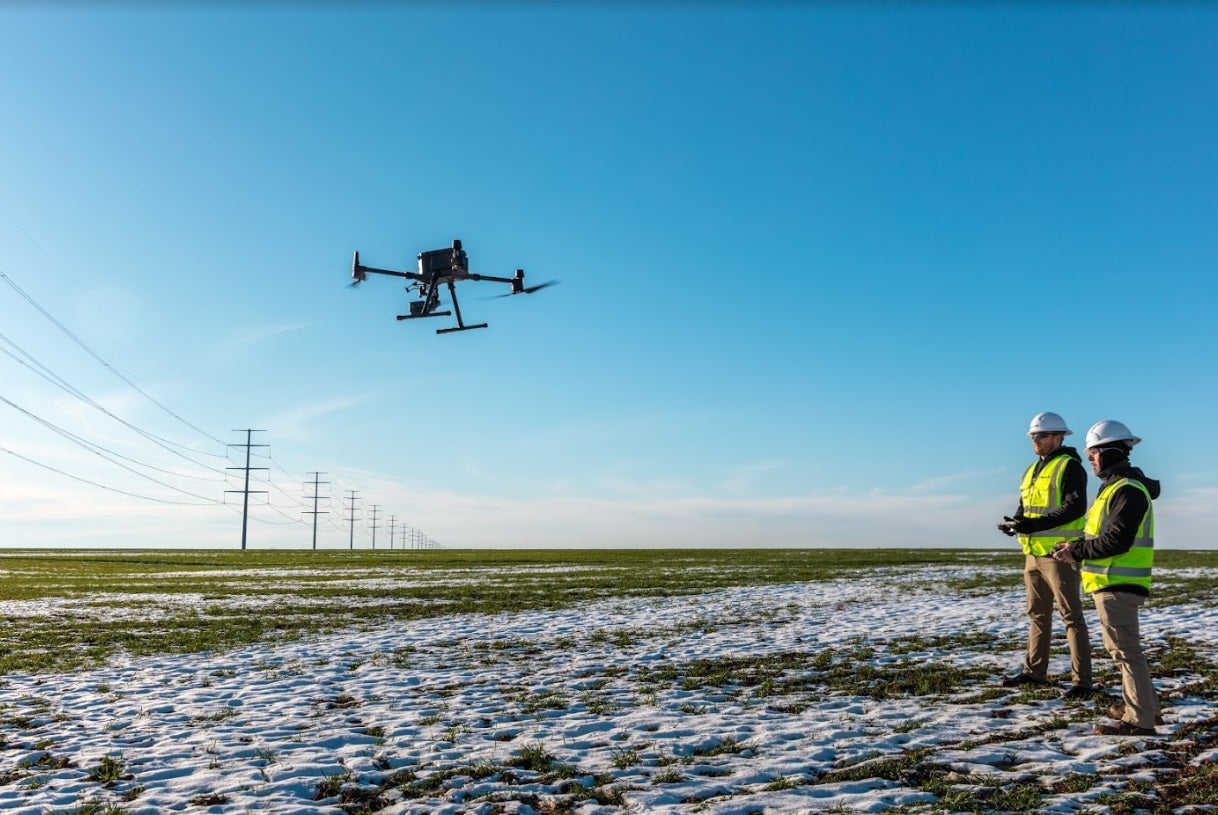
To complement this, the robust M300 RTK also has a wind resistance of 15m/s and can operate in temperatures from -20°C to 50°C, making it a safe and effective platform in a variety of challenging environments.
DJI M300 RTK: Carry Up To Three Payloads
The M300 RTK is an incredibly versatile aircraft, with the ability to mount up to three payloads simultaneously (single upward and dual downward gimbal configuration).
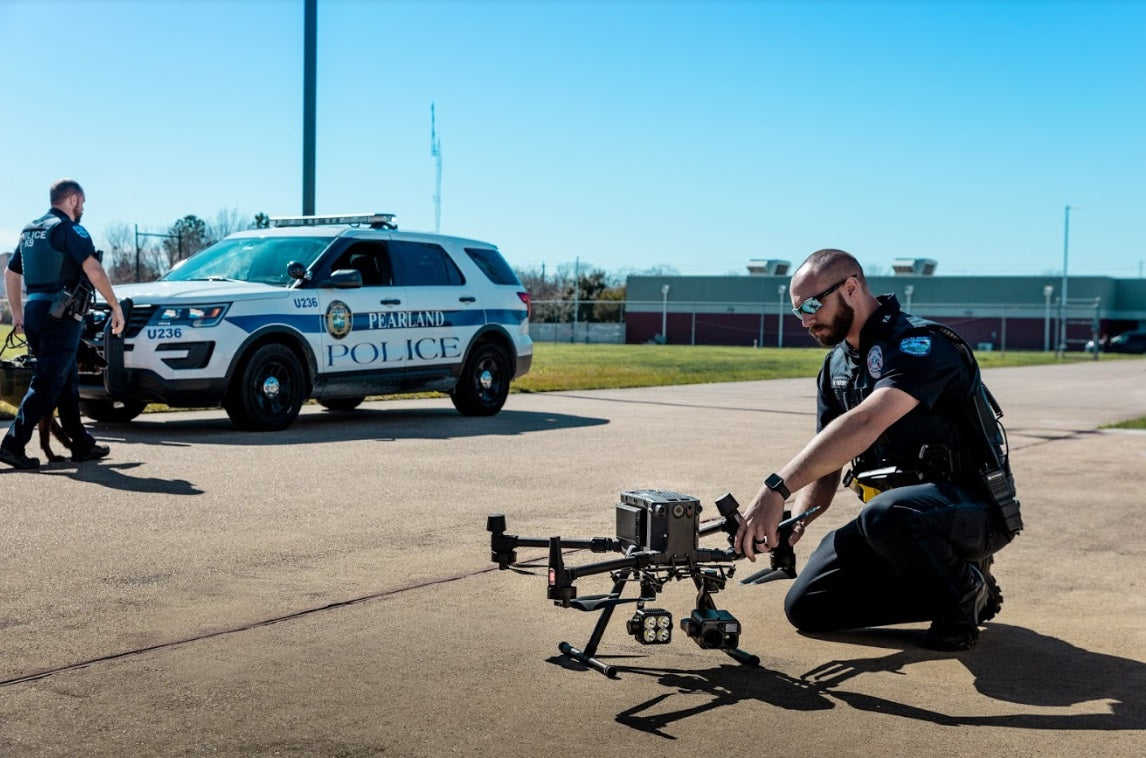
The multiple payload configurations of the drone are:
Single Downward Gimbal;
Dual Downward Gimbals;
Single Upward Gimbal;
Upward and Downward Gimbals;
Triple Gimbals.
This means that you can configure the drone to fit your mission needs.
This sturdy aircraft has been built to carry a maximum payload capacity of 2.7kg.
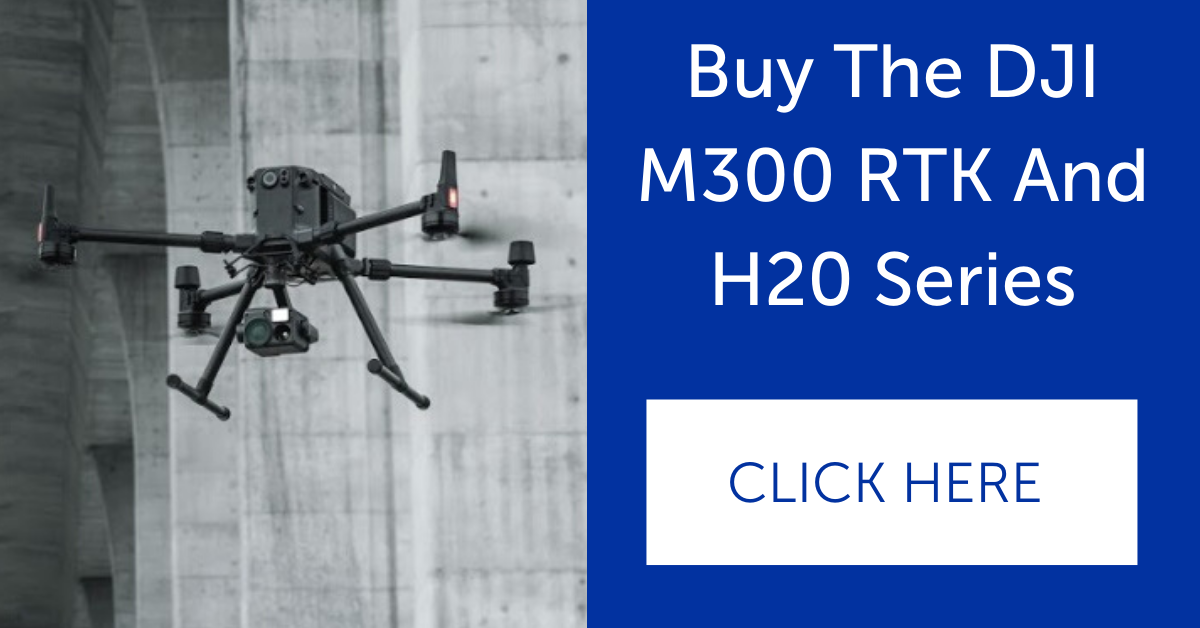
DJI M300 RTK: New Cameras Unveiled
One of the headlines of the DJI M300 RTK launch is the unveiling of two new cameras, dedicated exclusively to the drone. These are the Zenmuse H20 and the Zenmuse H20T - DJI’s first hybrid sensor payload solution.
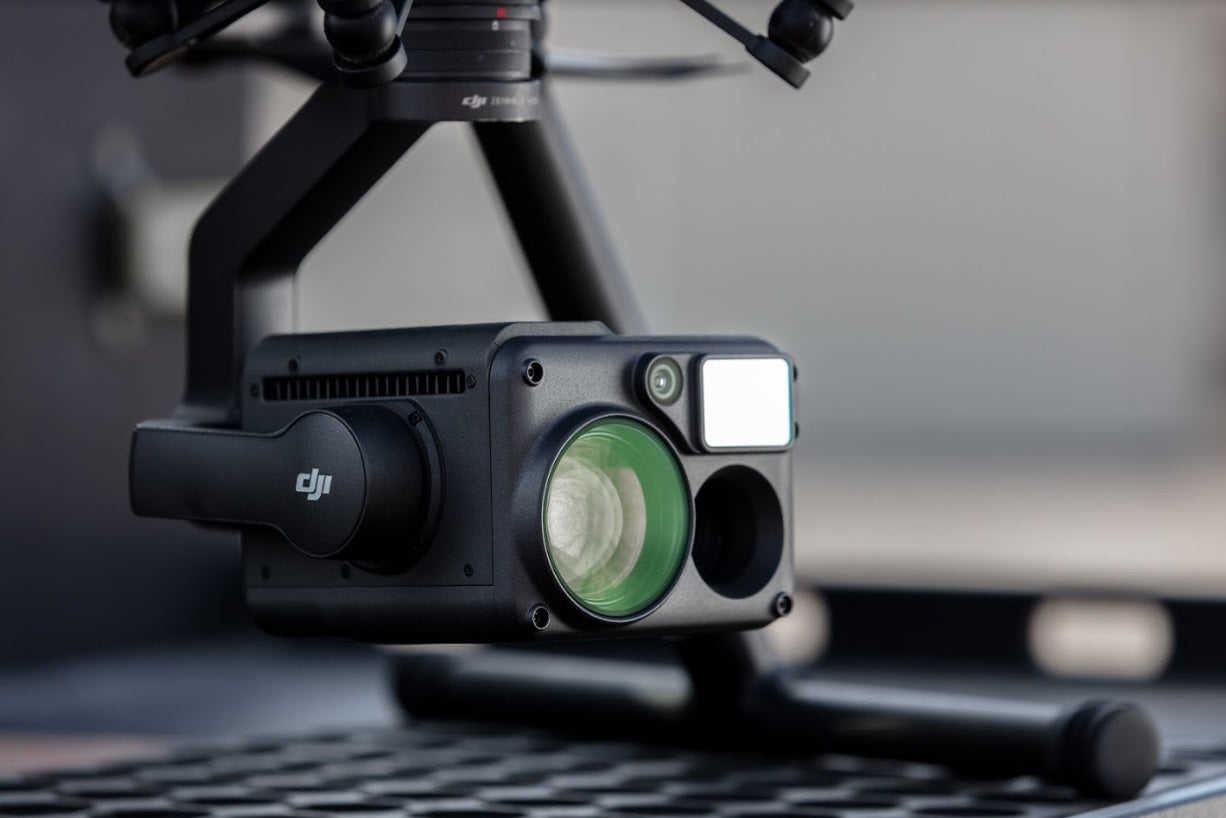
These multi-sensor payloads, which have an IP44 rating (protection against the intrusion of splashing water in all directions), take mission efficiency to the next level and can be utilised across a range of commercial drone applications.
The H20 is a triple-sensor solution featuring a 20MP zoom camera, a 12MP wide camera and a laser rangefinder with a range of up to 1,200m.
The H20T is a quad-sensor solution, packed with the same capabilities as the H20, but bolstered by a radiometric thermal camera, with a 640x512 resolution.
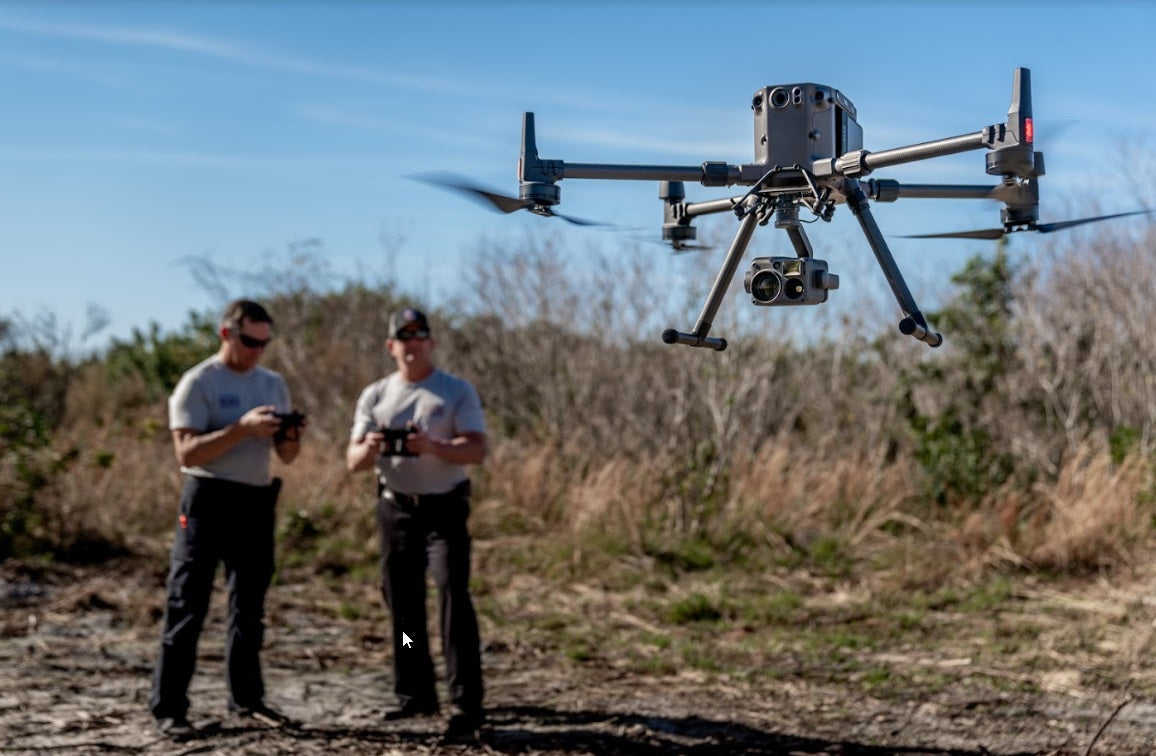
The key specifications for each part of the sensors:
Wide Camera:
Equivalent Focal Length: 24mm
DFOV: 82.9°
12 MP 1/2.3” CMOS Sensor
Zoom Camera:
23× Hybrid Optical Zoom
200× Max Zoom
20 MP 1/1.7” CMOS Sensor
Video Resolution: 4K/30fps
Laser Rangefinder:
Range: 3 m – 1200 m
Accuracy: ± (0.2 m + D×0.15%)
Thermal Camera:
DFOV: 40.6°
Resolution: 640×512
Frame Rate: 30fps
Thermal Sensitivity: ≤ 50mk@f1.0 (NEDT)
Integrating the H20T with the M300 RTK ensures maximum efficiency and a superior performance with just one payload. To put this into perspective, the M300 RTK with a H20T can fly for 36 minutes. In comparison, the M210 RTK V2, integrated with the Z30 zoom camera and XT2 thermal camera, can only fly for around 22 minutes.
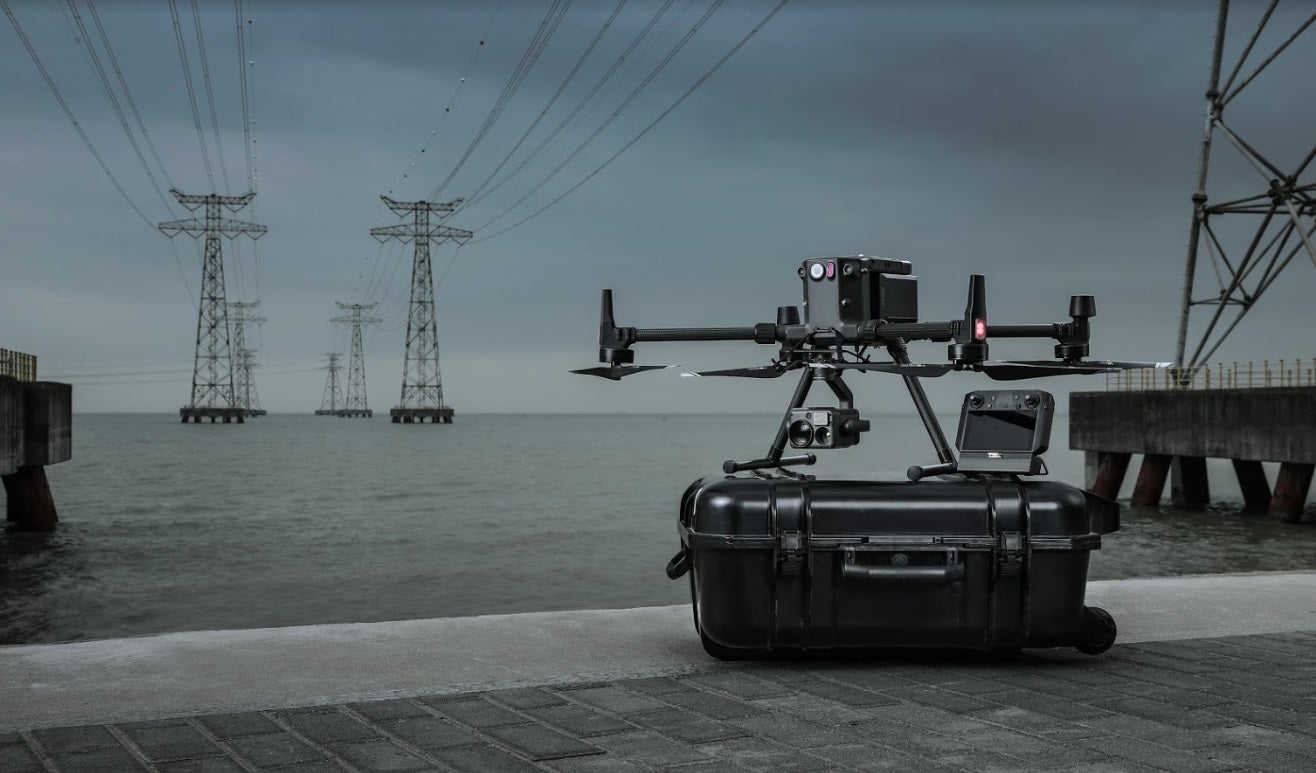
As well as the H20 and H20T, the DJI M300 RTK can be integrated with well-known existing solutions, such as:
Zenmuse Z30 - a 30x optical zoom camera;
Zenmuse XT2 - 4K visual sensor and thermal imaging;
XT S - the XT2’s smaller sibling.
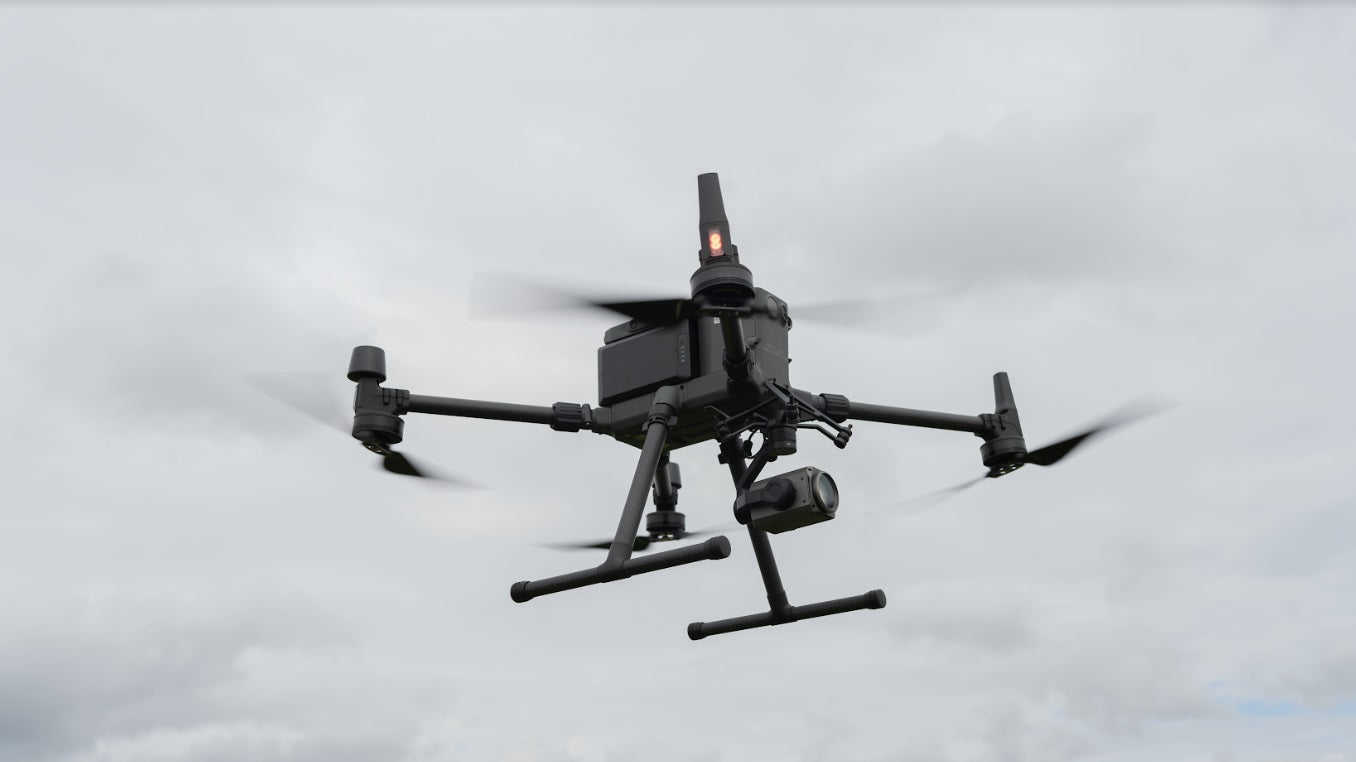
The M300 RTK does not support the X4S, X5S, or X7, but for added versatility, the aircraft can be integrated with third-party payloads for specialised missions and tasks.
This means that you could utilise the H20T - for a thermal and zoom solution, aided by the laser rangefinder - and integrate the Wingsland Z15 high-powered spotlight (see picture below) to illuminate an area. This would be a popular option for public safety and search and rescue, for example.
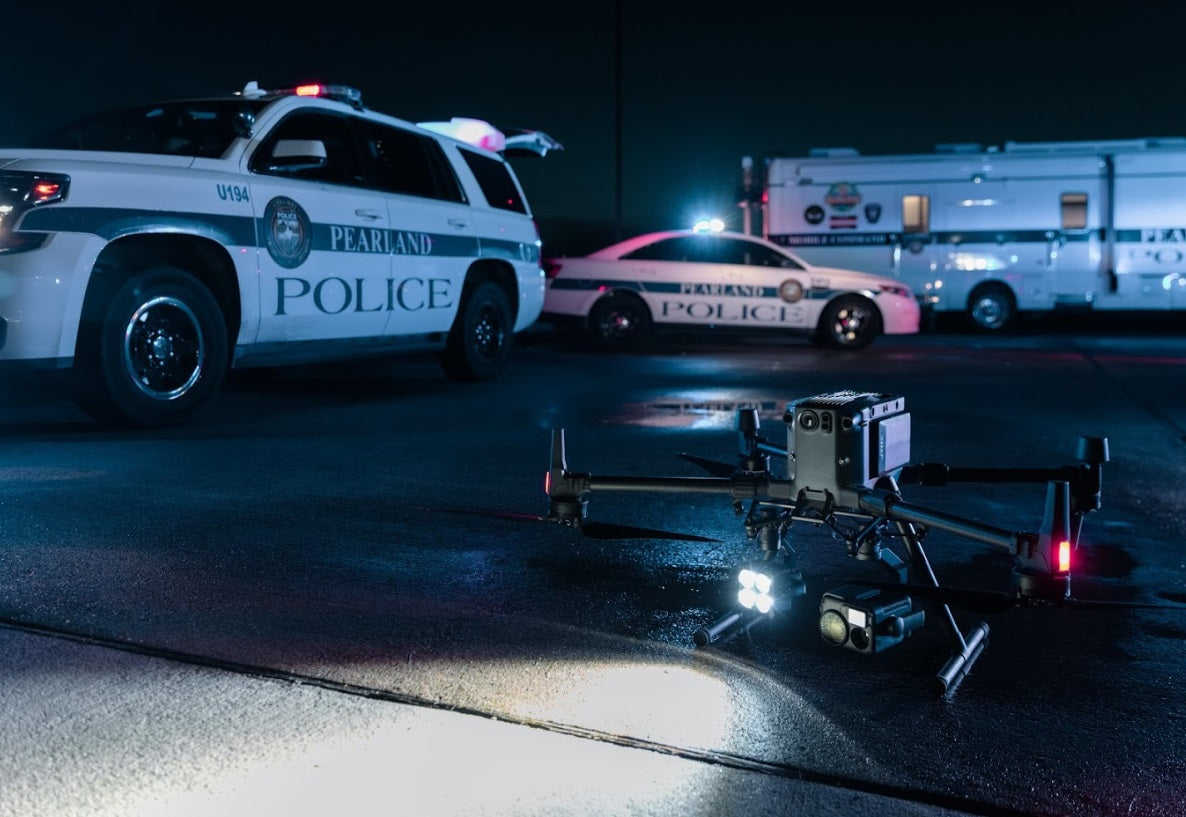
DJI M300 RTK: Improved Transmission System
The M300 RTK is equipped with DJI’s new OcuSync Enterprise, which enables transmission up to 15km away (FCC, or 8km CE) and supports triple channel 1080p video (only supported with Dual RC).
To ensure a more reliable flight near high-interference environments, the M300 RTK benefits from the ability to auto-switch between 2.4GHz and 5.8GHz in real-time.
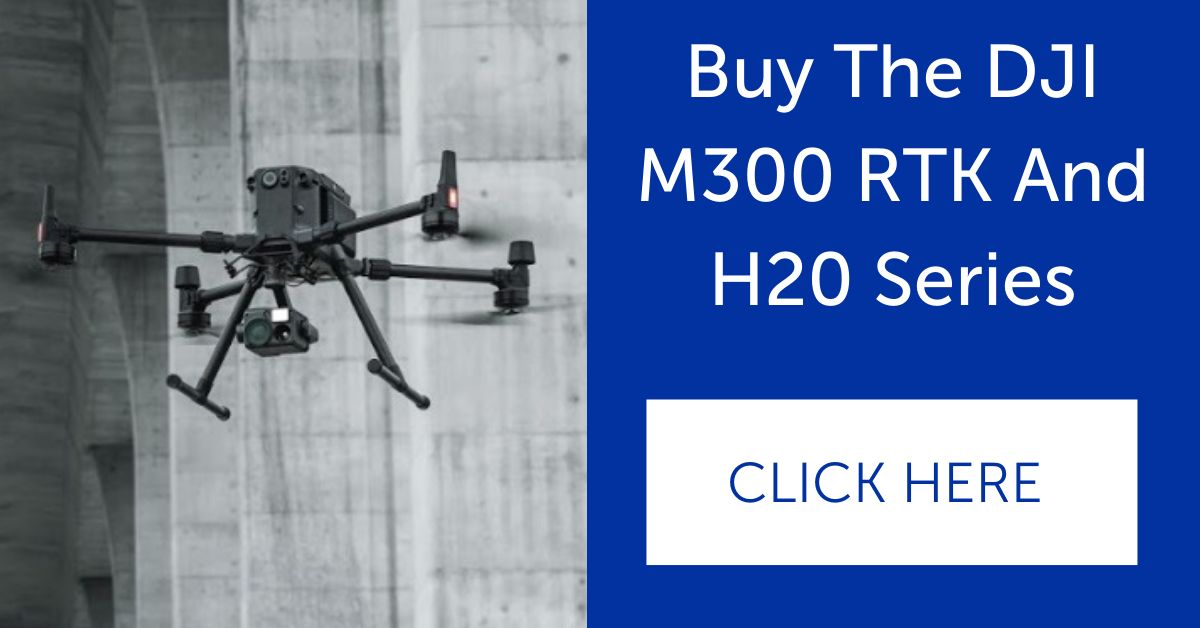
The drone is also equipped with AES-256 encryption, offering safe and secure data transmission.
DJI M300 RTK: Rapid Deployment
For a drone of its size, the M300 RTK can be deployed easily and quickly - a bonus, especially during time-critical public safety missions.
For starters, the drone benefits from permanently attached, folding props. As an extra time-saver, the M300 RTK sits upside down in its carrying case, meaning that the payloads can be attached safely while the drone is in its box, and the batteries can be attached to the aircraft while it is in its carry case.
Operators will also benefit from the M300 RTK's extra-long endurance, and the drone's TB60 hot-swappable batteries can be charged in the new battery station in an hour (more of that further on).
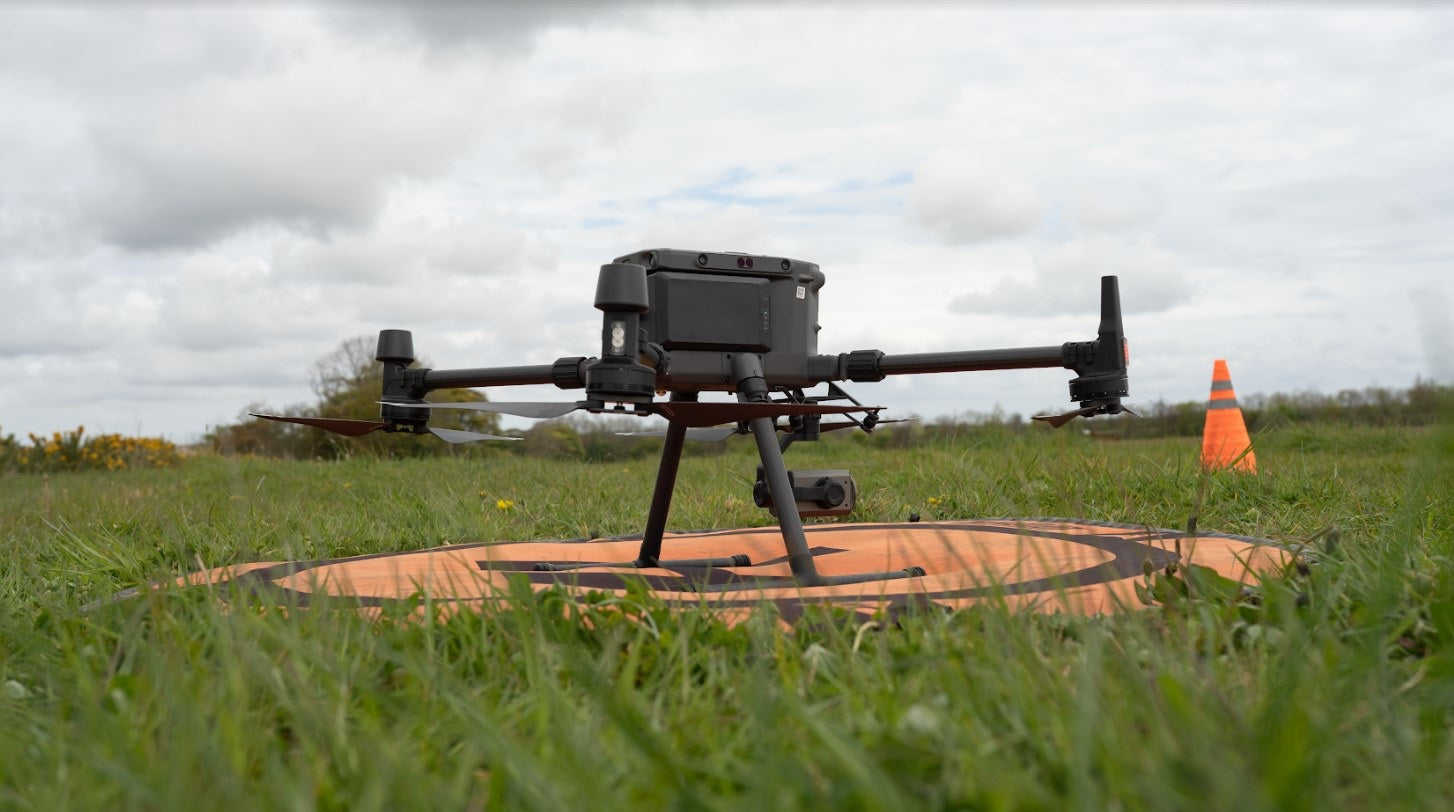
DJI M300 RTK: A Smart Tool For Smart Inspection
The sophisticated M300 RTK has been built to maximise efficiency and provide accurate data capture - thanks to the drone’s new Smart Inspection capabilities.
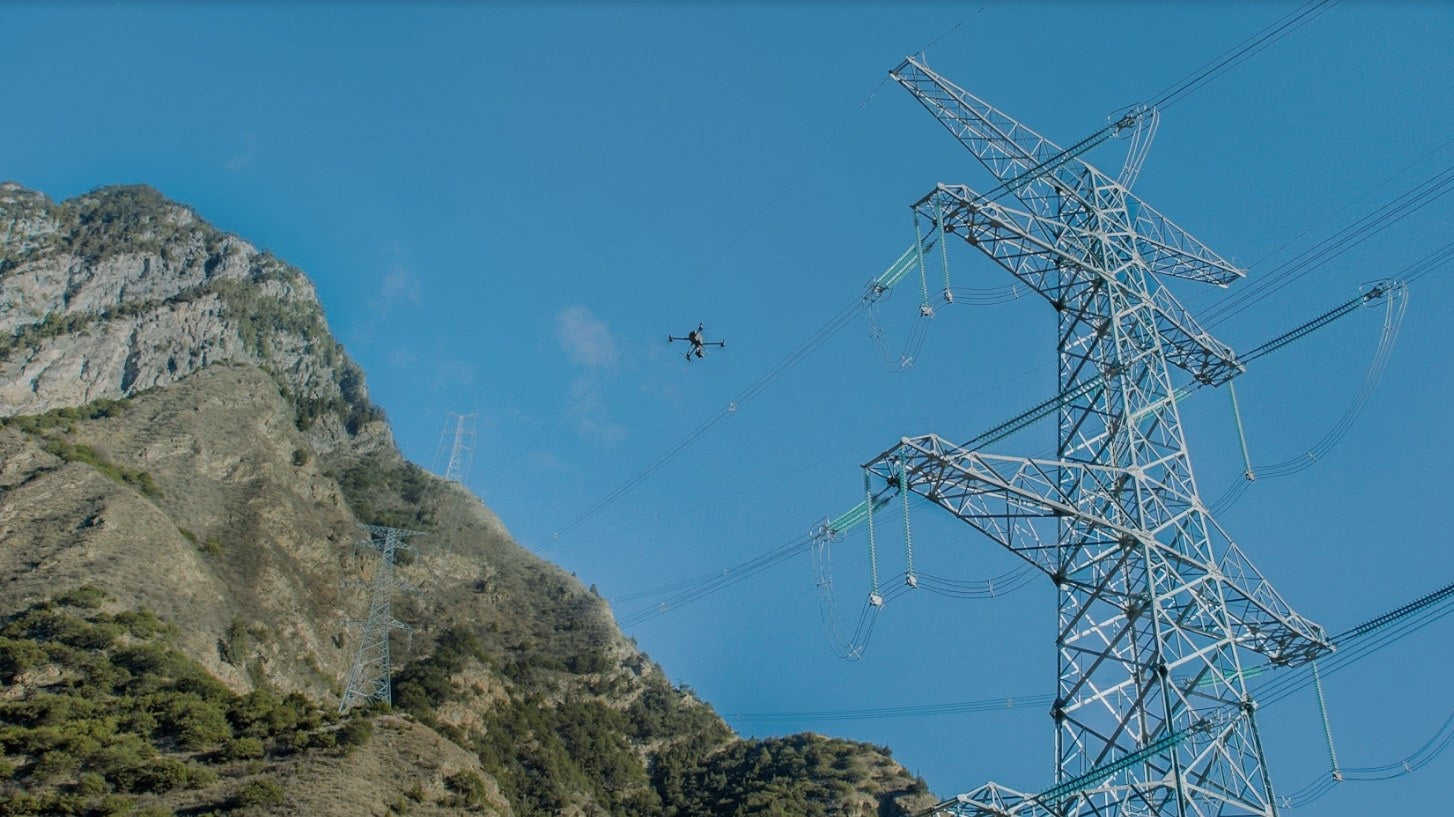
These include:
Live Mission Recording: Record mission actions such as aircraft movement, gimbal orientation, photo shooting, and zoom level to create sample mission files for future automated inspections.
AI Spot-Check: Automate routine inspections and capture consistent results every time. Onboard AI recognises the subject of interest and identifies it in subsequent automated missions to ensure consistent framing. This means that when the mission is executed next time, the gimbal will automatically search the framed object to deliver accurate and consistent results. This mode is only supported with H20 Series payloads.
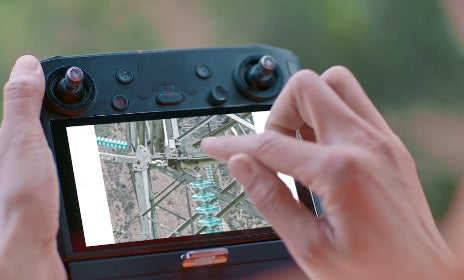
Waypoints 2.0: Create up to 65,535 waypoints and set multiple actions for one or more payloads, including third-party ones, at each waypoint. Flightpath planning is also optimised to maximise flexibility and efficiency for your missions.
DJI M300 RTK: Introducing The New DJI Smart Controller Enterprise
The M300 RTK comes with the new DJI Smart Controller Enterprise. This device - similar to the popular Smart Controller for the Mavic Series - features an ultra-bright 5.5-inch 1080p display which maintains clear visibility, even in direct sunlight. To put this into perspective, the DJI Smart Controller Enterprise is twice as bright as conventional smart devices.
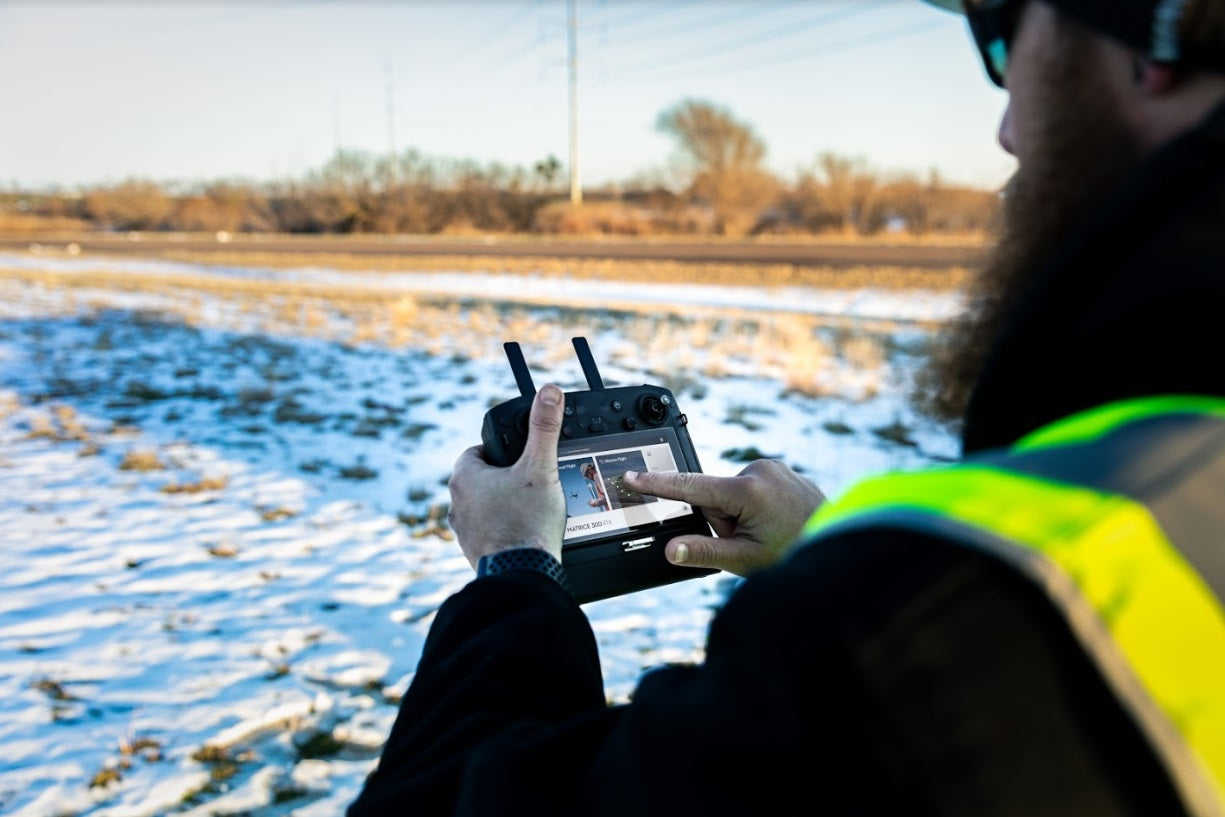
The controller supports DJI Pilot, as well as third-party apps.
Thanks to the DJI Smart Controller Enterprise, pilots are assured of aviation-grade situational awareness. The drone has a new Primary Flight Display which integrates flight, navigation, and obstacle information.
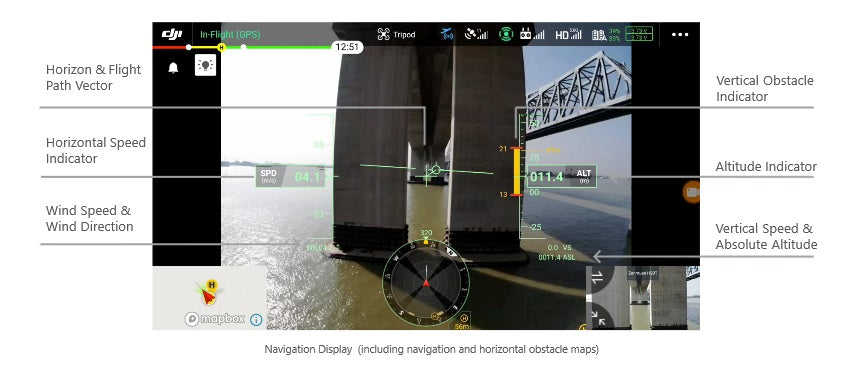
During your mission, flight information such as aircraft altitude, and velocity, as well as wind speed and wind direction, are presented.
Pilots can also view the live status of their aircraft, such as trajectory, and home-point projection, as well as see all nearby obstacles with the new obstacle map.
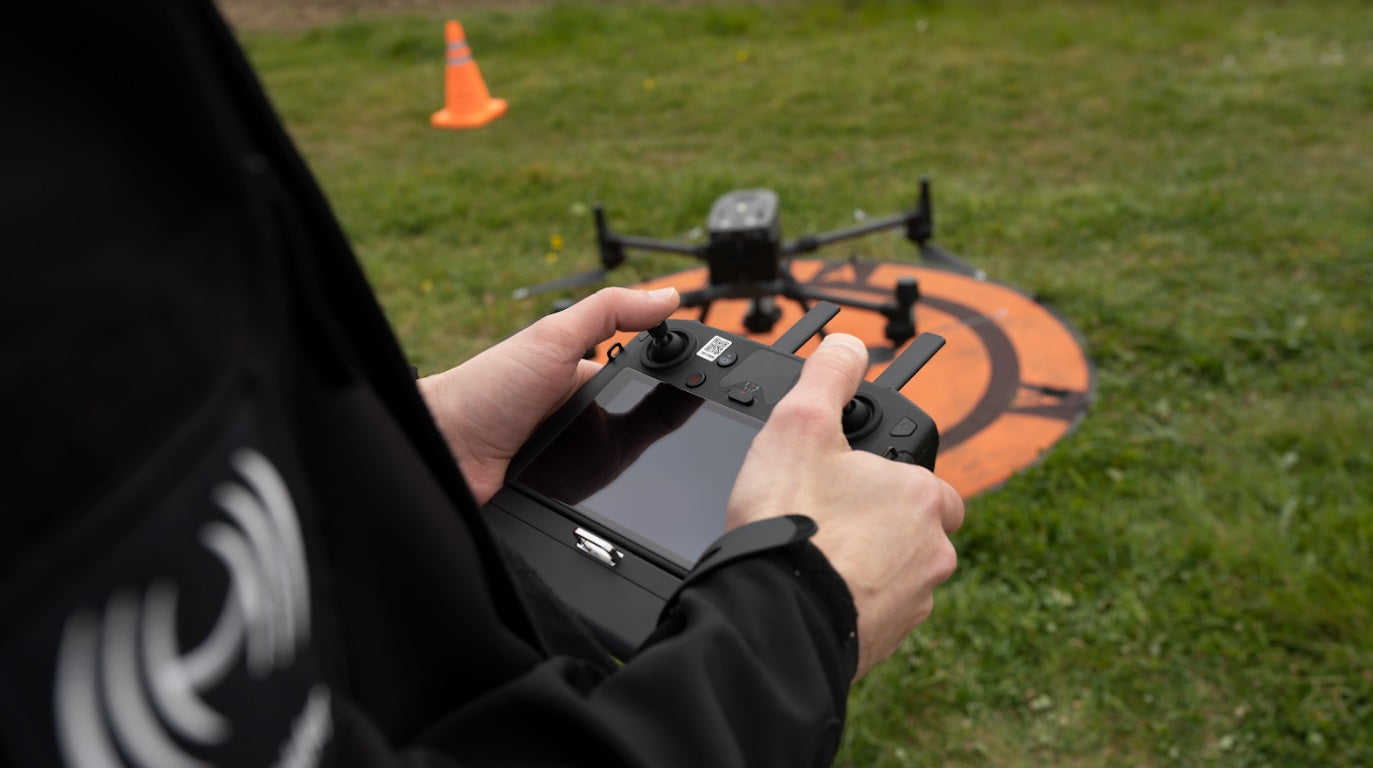
M300 RTK operators can also utilise the PinPoint, SmartTrack and Location Sharing functions to maximise efficiency. So, how do the Smart Pin and Track functions (only supported when aircraft paired with H20 Series) help?
PinPoint: A quick tap marks an object in view, and advanced sensor fusion algorithms immediately deliver its coordinates.
SmartTrack: Identify and follow moving subjects with the auto-zoom function, while acquiring the subject's dynamic location.
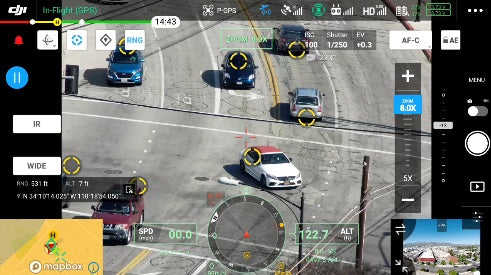
Location Sharing: When PinPoint or SmartTrack is enabled, the subject’s location can be projected across multiple camera views to another remote controller or shared through online platforms, such as DJI FlightHub (support for location sharing via DJI FlightHub coming soon).
DJI M300 RTK: Advanced Dual Control
One of the most exciting features of the DJI M300 RTK is the advanced dual control. This enables operators to switch aircraft control in-flight, greatly aiding complex or long-distance missions.
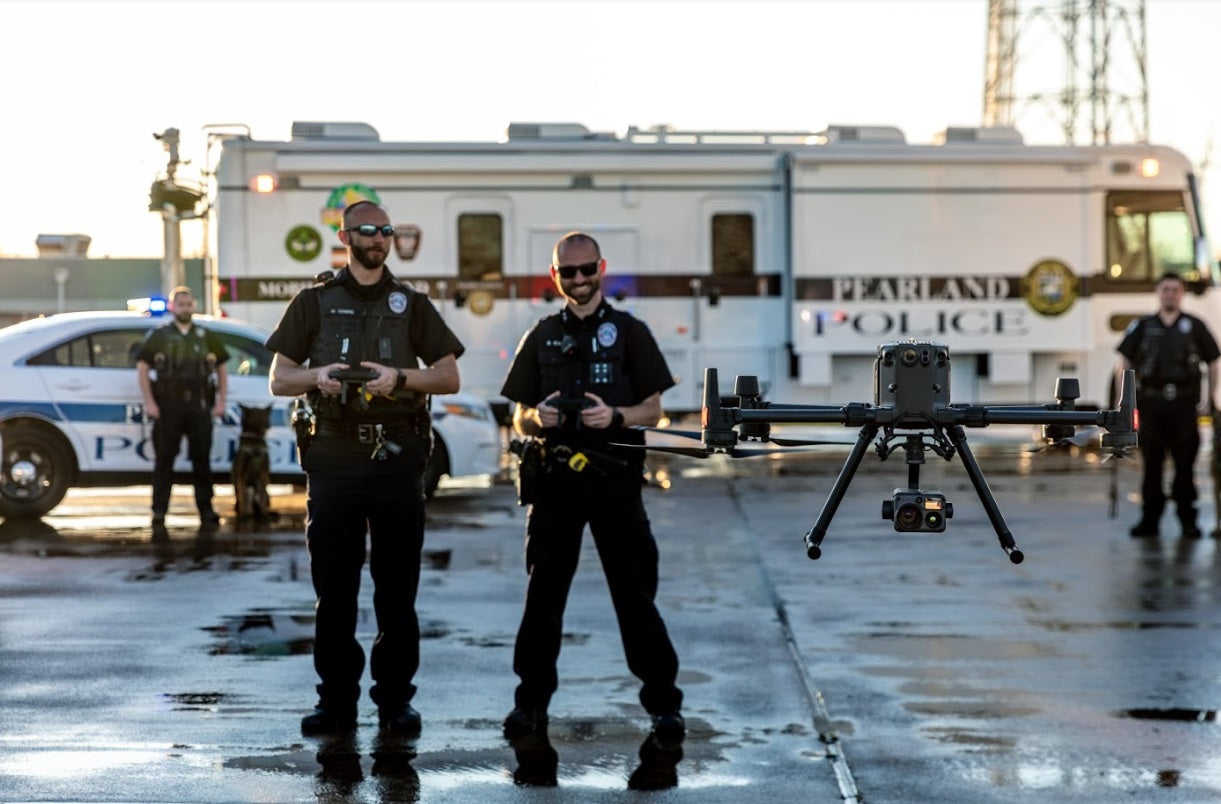
This option means that, with just a single tap, either operator can obtain control of the aircraft or payload.
This enables the drone to take-off and land in different locations with different pilots and creates new possibilities for mission strategies, as well as higher flexibility during operations.
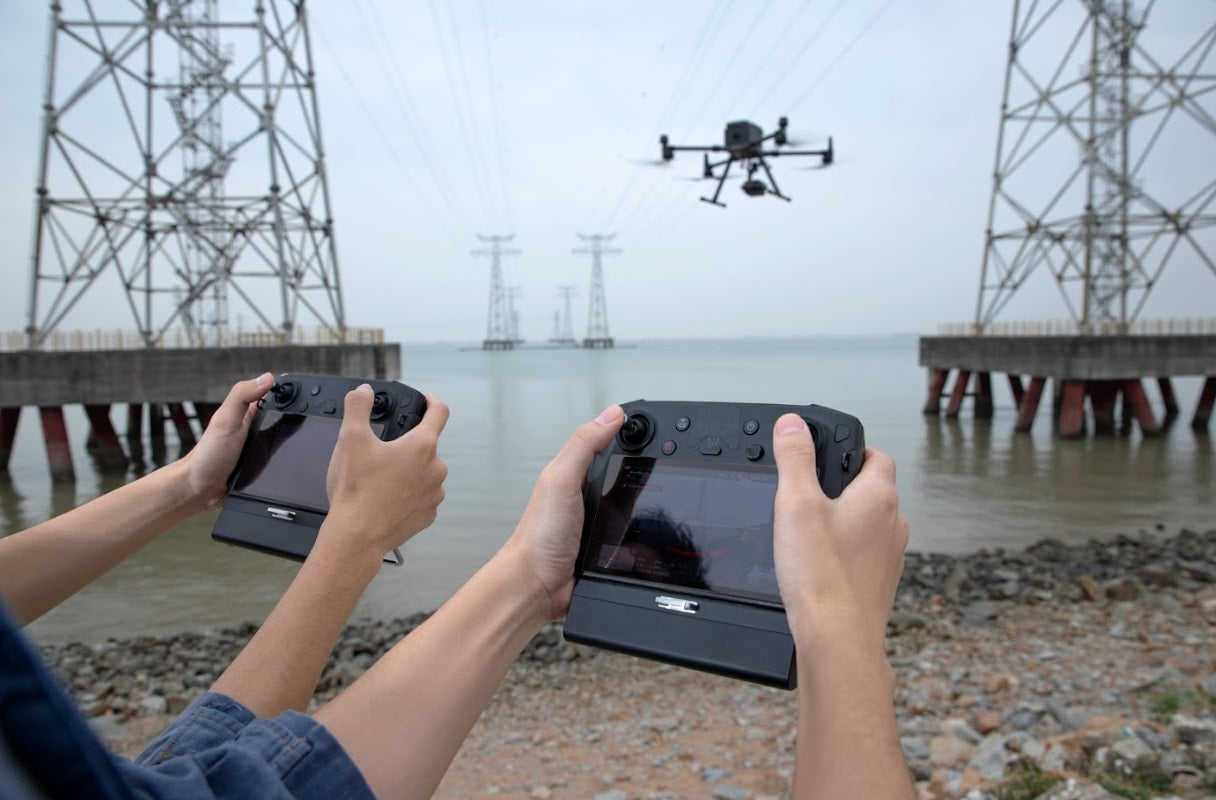
The M300 RTK, when controlled by two pilots, gives each pilot equal access to gain flight control priority, the transfer of which is displayed by a series of icons on the DJI Smart Controller Enterprise. Now, if one pilot becomes compromised or their controller loses battery or connection, the other pilot gains full control over the M300 RTK and its payloads.
Additionally, when training new pilots, the teacher/main pilot can safely take over flight control – if and whenever necessary.
When flying with a co-pilot, you both have equal access to gain flight control priority, the transfer of which is signalled by a series of icons on your DJI Smart Controller Enterprise.
Two pilots can seamlessly transfer between control of the drone and of its gimbals. With these redesigned flight control protocols, visual line of sight can be maintained from one pilot to a co-pilot to enable Beyond Visual Line of Sight (BVLOS) missions.
DJI M300 RTK: Advanced Flight Safety
The M300 RTK is DJI’s safest aircraft to date.
To enhance in-flight safety and aircraft stability, dual-vision and TOF sensors appear on all six sides of the aircraft, offering a maximum detection range of up to 40m, with options to customise the aircraft’s sensing behaviour via the DJI Pilot App. Even in complex operating environments, this six Directional Sensing and Positioning system helps keep the aircraft and the mission safe.
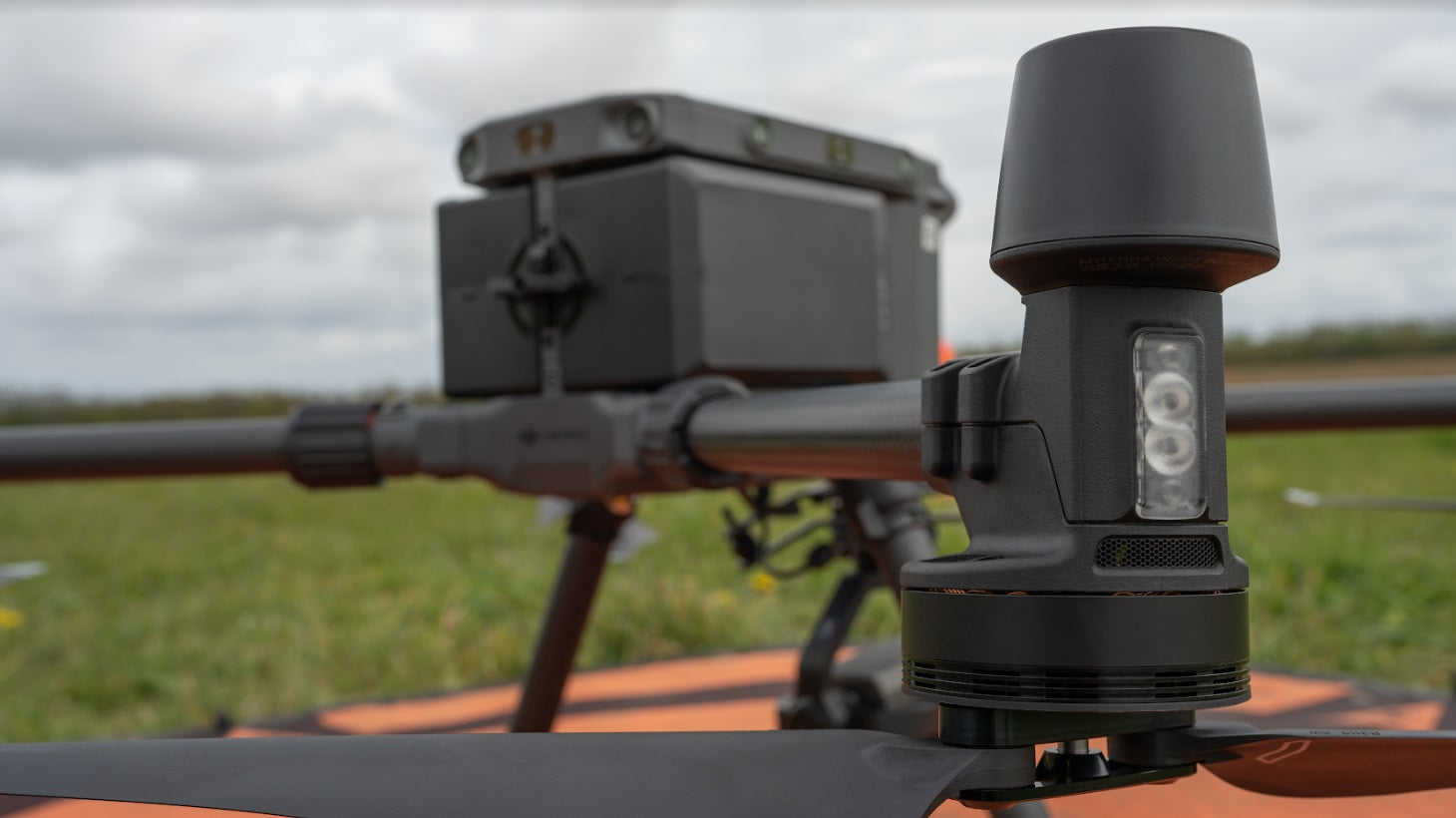
The drone also benefits from Auxiliary LED lights and anti-collision beacons (up and down) and features DJI’s AirSense technology - an alert system that gathers ADS-B (Automatic Dependent Broadcast) signals emitted by nearby aircraft. These are then turned into alerts for DJI drone pilots, who can see their location on their screen of their remote controller. The ADS-B Receiver provides information about airplanes/helicopters within a 20km radius.
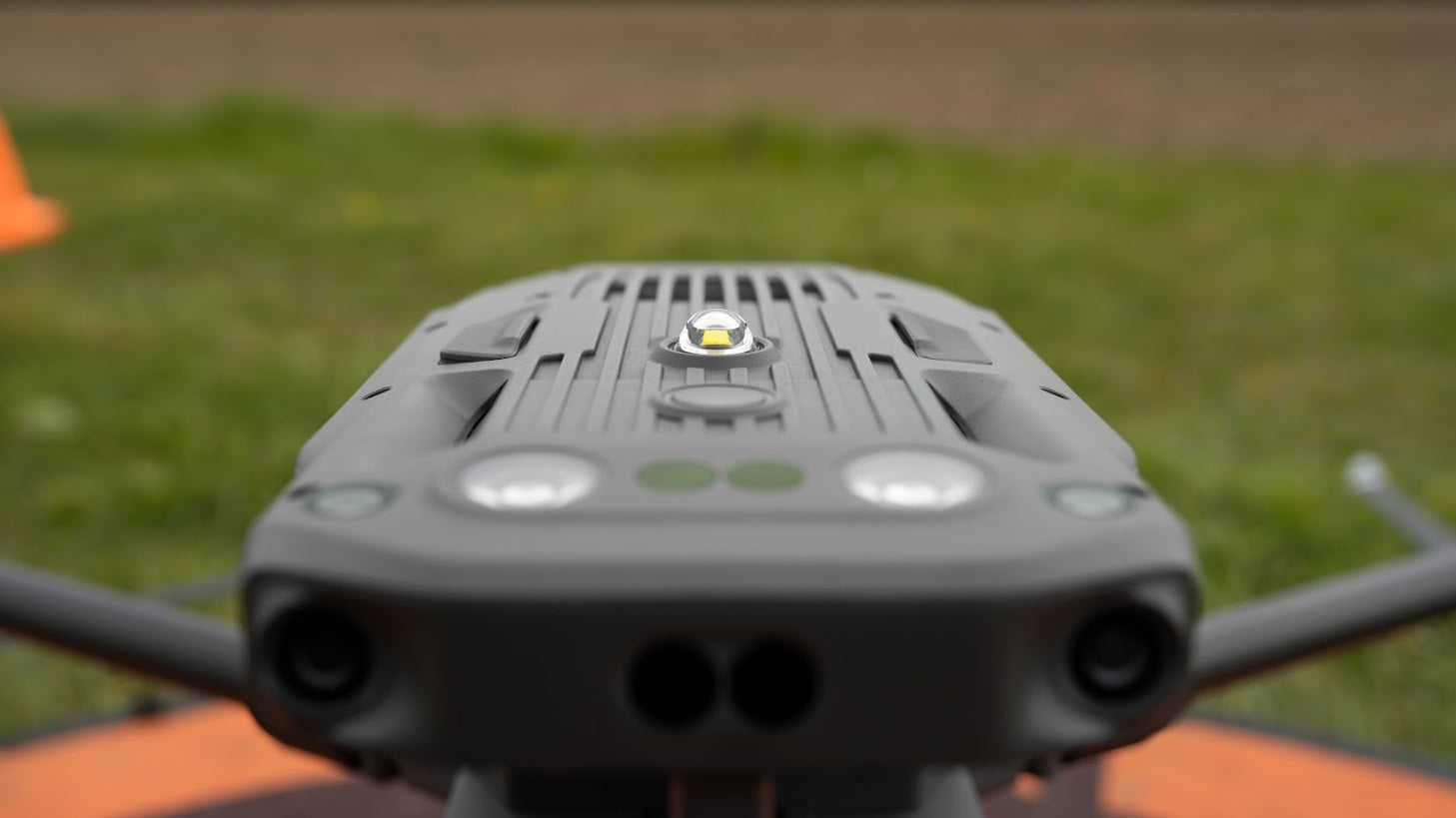
To enhance flight safety further, the M300 RTK’s ESC is located in the body of the aircraft. It also benefits from advanced built-in redundancy systems (Dual IMU, Dual Barometer, Dual Compass, and Dual RTK Antenna and GNSS Module).
Thanks to its Dual Battery provision, if one battery fails, the drone can still return home safely, while the M300 RTK also benefits from a three-propeller emergency landing, helping you to maintain control of the aircraft, especially in the case of a motor malfunction.
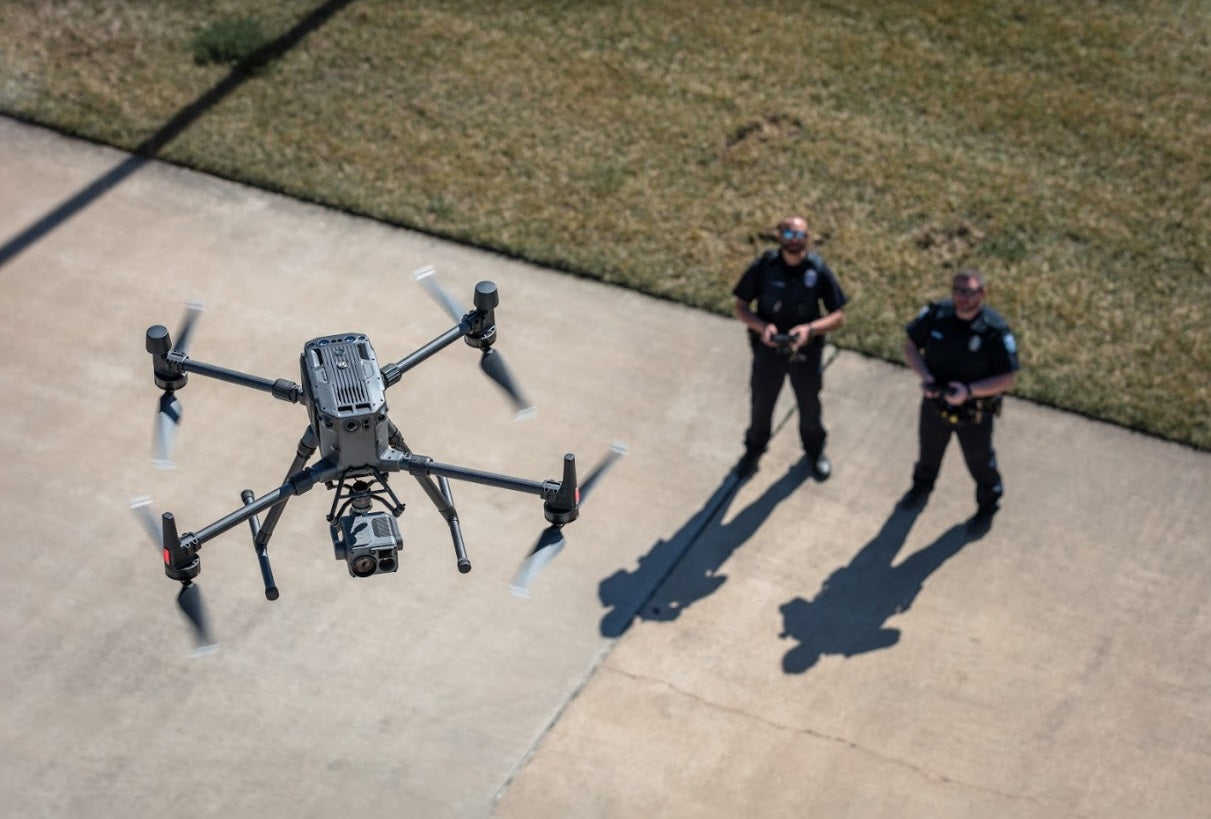
Users of the DJI M300 RTK will be able to take advantage of the integrated Health Management System. This feature displays the current status of all systems, notification logs, and a preliminary troubleshooting guide. Users will also be able to access crucial information, such as flight logs, mileage and tips on aircraft maintenance and care, track piot hours and manage firmware updates.
DJI M300 RTK: New TB60 Batteries and Battery Station
With this new drone comes a new battery, in the form of the TB60 Intelligent Flight Battery. The TB60 is high-capacity and hot-swappable, enabling operators to change batteries without powering off, saving time during critical missions.
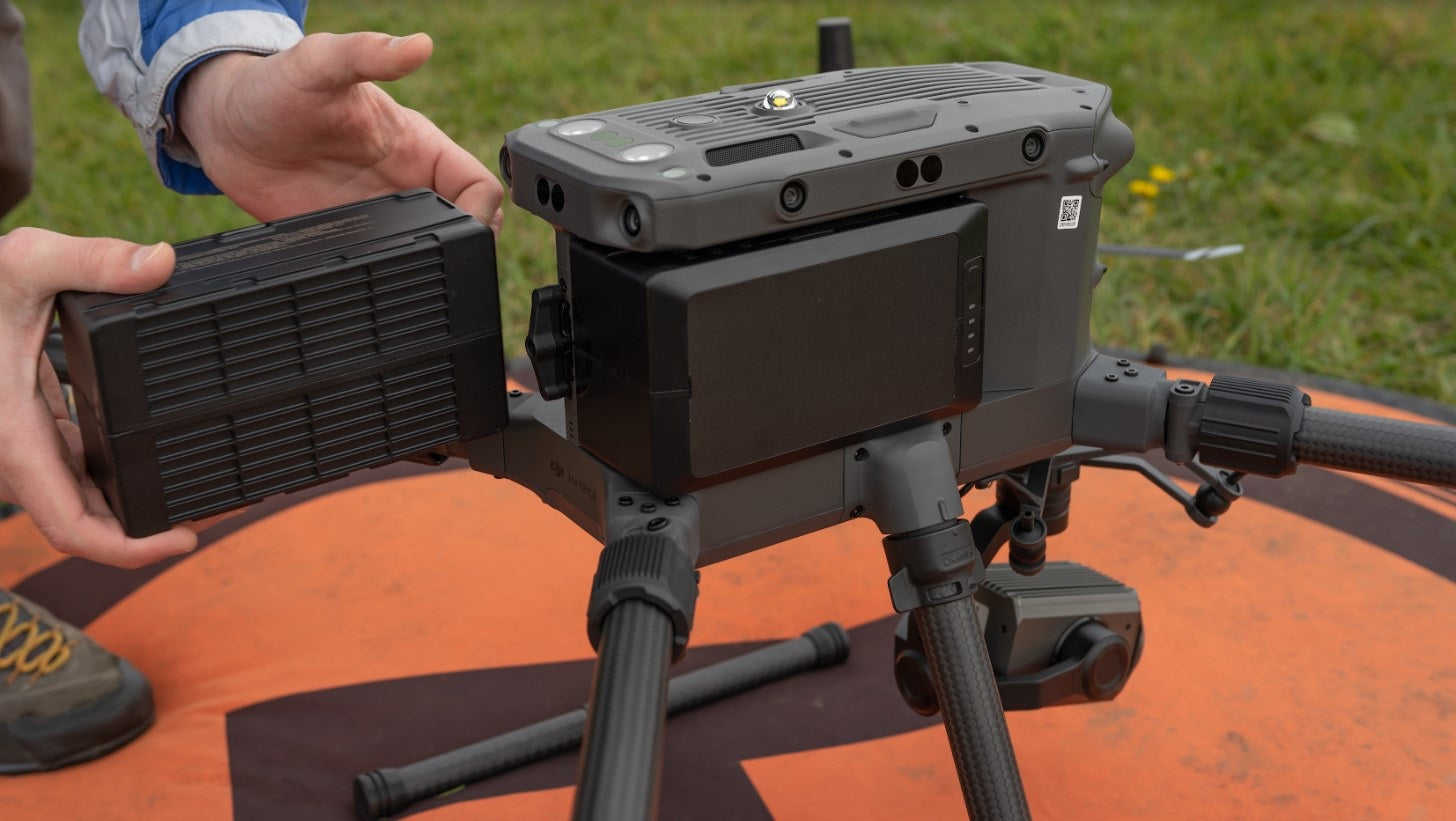
The new Battery Station helps you take your flight further. This sophisticated power bank manages up to eight flight batteries and four remote controller batteries, while fast charging allows you to conduct your missions without running out of power.
This all-in-one charging and storage solution charges two batteries to full capacity within 60 minutes to enable continuous flight time.
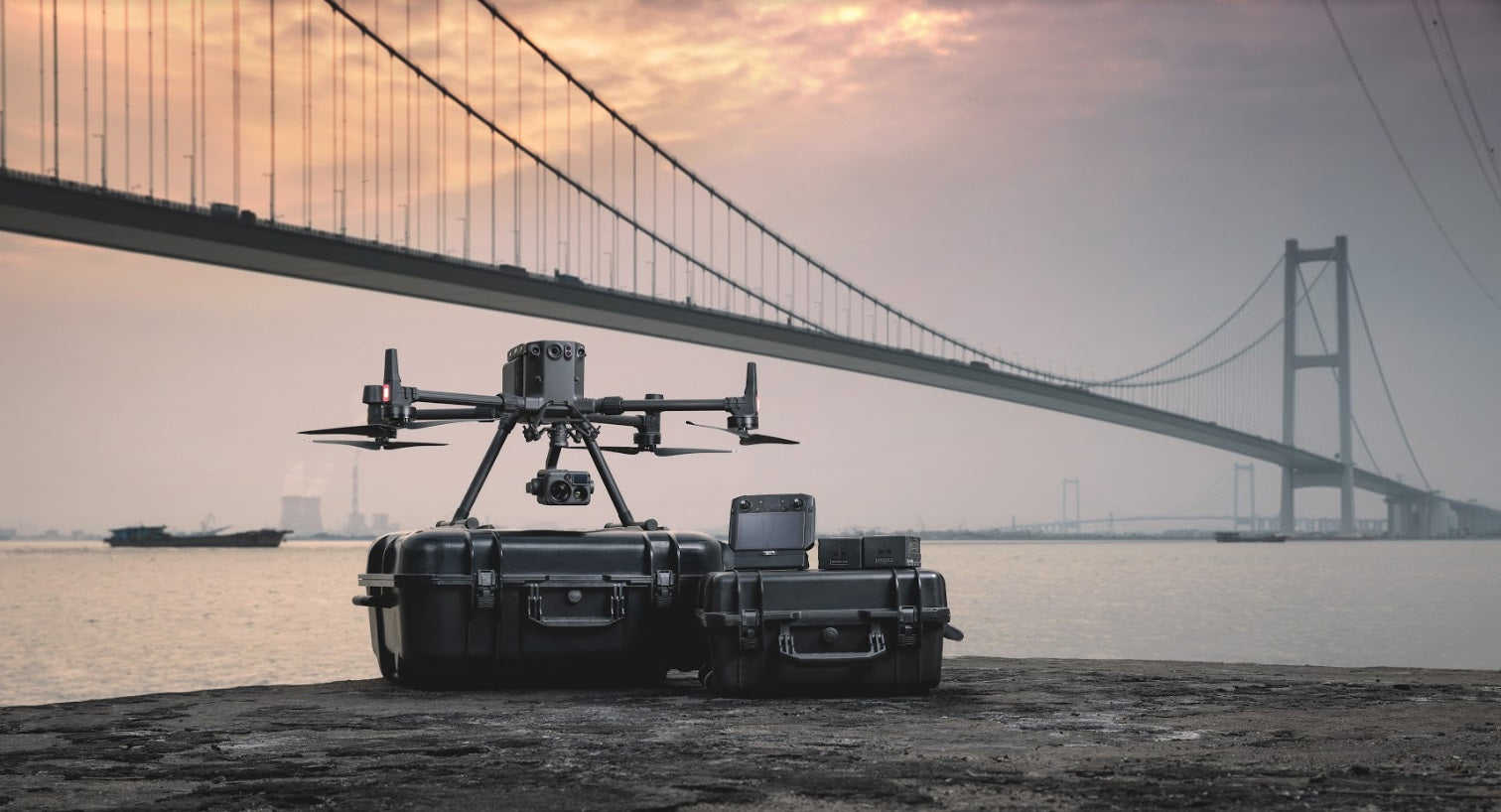
DJI M300 RTK: Other Features And Accessories
D-RTK 2 Mobile Station: Gain improved relative accuracy with centimetre-level precision positioning data using the D-RTK 2 High Precision GNSS Mobile Station, which supports all major global satellite navigation systems and provides real-time differential corrections. The M300 RTK is also compatible with NTRIP.
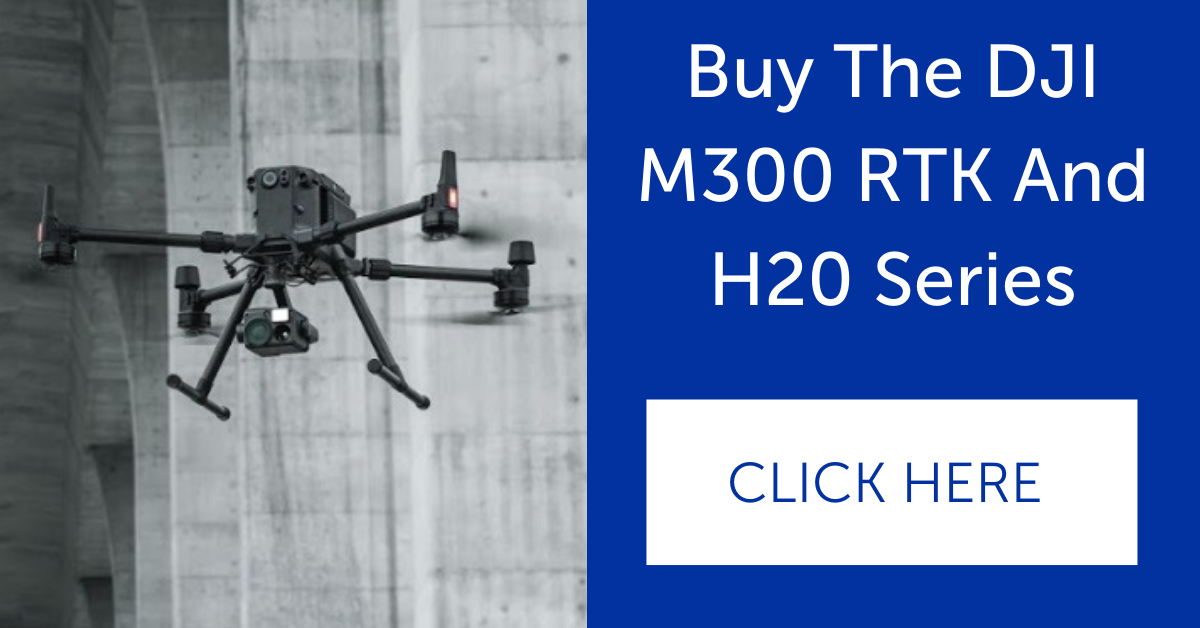
CSM Radar: For an added safety measure, a Circular Scanning Millimeter-Wave (CSM) Radar with a detection range between 1 to 30m can be mounted on top of the aircraft. This will be available soon.
Other features of the M300 RTK include:
Discreet Mode
High-altitude low noise propellers
Local Date Mode
TimeSync compatible
DJI M300 RTK: Applications and Case Studies
The DJI M300 RTK and its associated payloads can be deployed for a range of commercial, industrial and enterprise missions, such as critical infrastructure, law enforcement, public safety, oil and gas, and powerline inspections.
Firefighting: Fight fires and save lives without endangering personnel. Use the thermal sensor to see through smoke and identify hotspots.
Search and Rescue: Act quickly to locate missing people and better plan rescue missions.
Law Enforcement: Quickly assess a situation and plan accordingly while improving officer and bystander safety.
Powerline Inspection: Easily visualise extensive powerline networks in remote areas.
Oil and Gas: Conduct inspections of pipelines, well sites and more - while keeping workers away from risky areas.
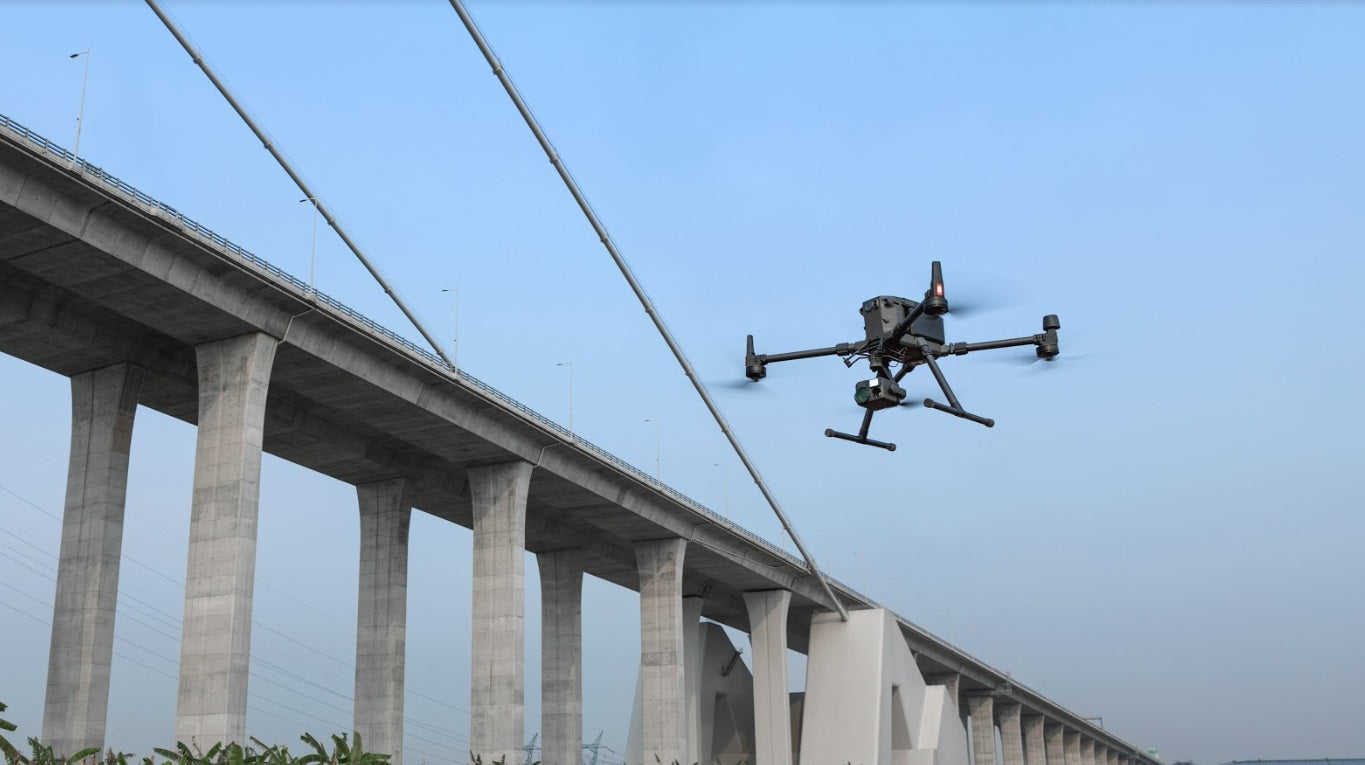
Public Safety Case Study
On December 5 2019, a fire erupted in the mountainous region of Foshan City, covering an area of more than 2km. Drones were deployed.
A DJI Mavic 2 Enterprise Dual flew first, for a rapid assessment. The M300 RTK paired with the H20T was subsequently deployed.
Imagery captured on scene was shared in real-time across operators and ground trams, aiding team cooperation.
Energy
Manufacturing company Valmont has been utilising drones to help inspect/maintain its structures.
The company has found that integrating the H20T with the M300 RTK has helped staff gather data more efficiently and in a shorter amount of time - increasing productivity in the process.
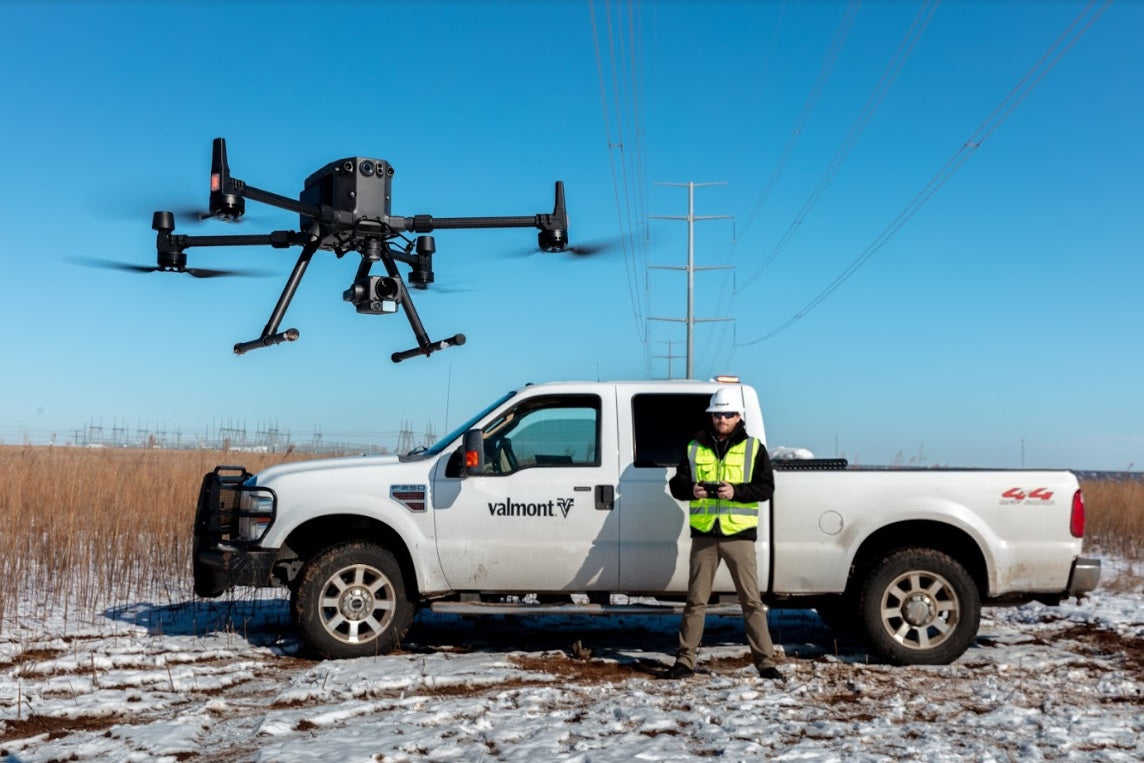
Valmont takes advantage of the high-res grid photo feature to capture the overall structure and capture each subcomponent. The 20MP sensor and 23x hybrid optical zoom make it possible to capture high-res data quickly and efficiently.
The addition of hot-swappable batteries has increased mission times; operators don’t wait to reacquire RTK signal and continue their missions after a battery swap,
Valmont uses AI-SpotCheck for repeatable missions, capturing the same data for the same structure.
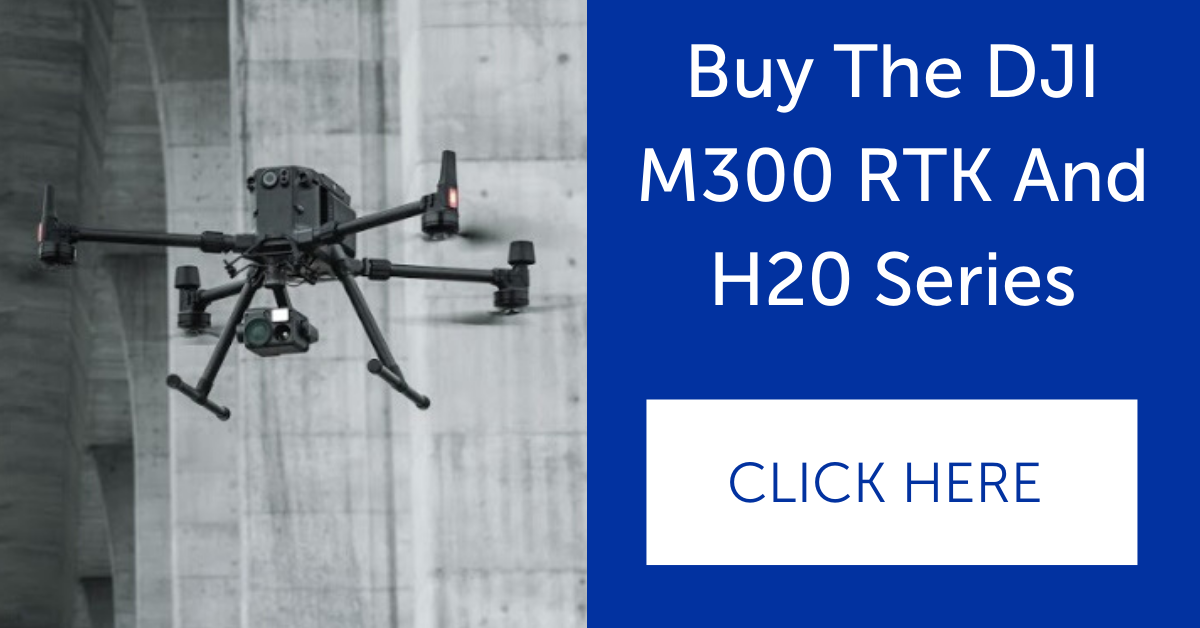
DJI M300 RTK: Summary
The DJI M300 RTK is an extraordinary drone and a powerful tool for commercial and enterprise drone missions.
This next-generation aircraft is packed with features which will maximise efficiency, enhance safety and deliver fast and accurate results.
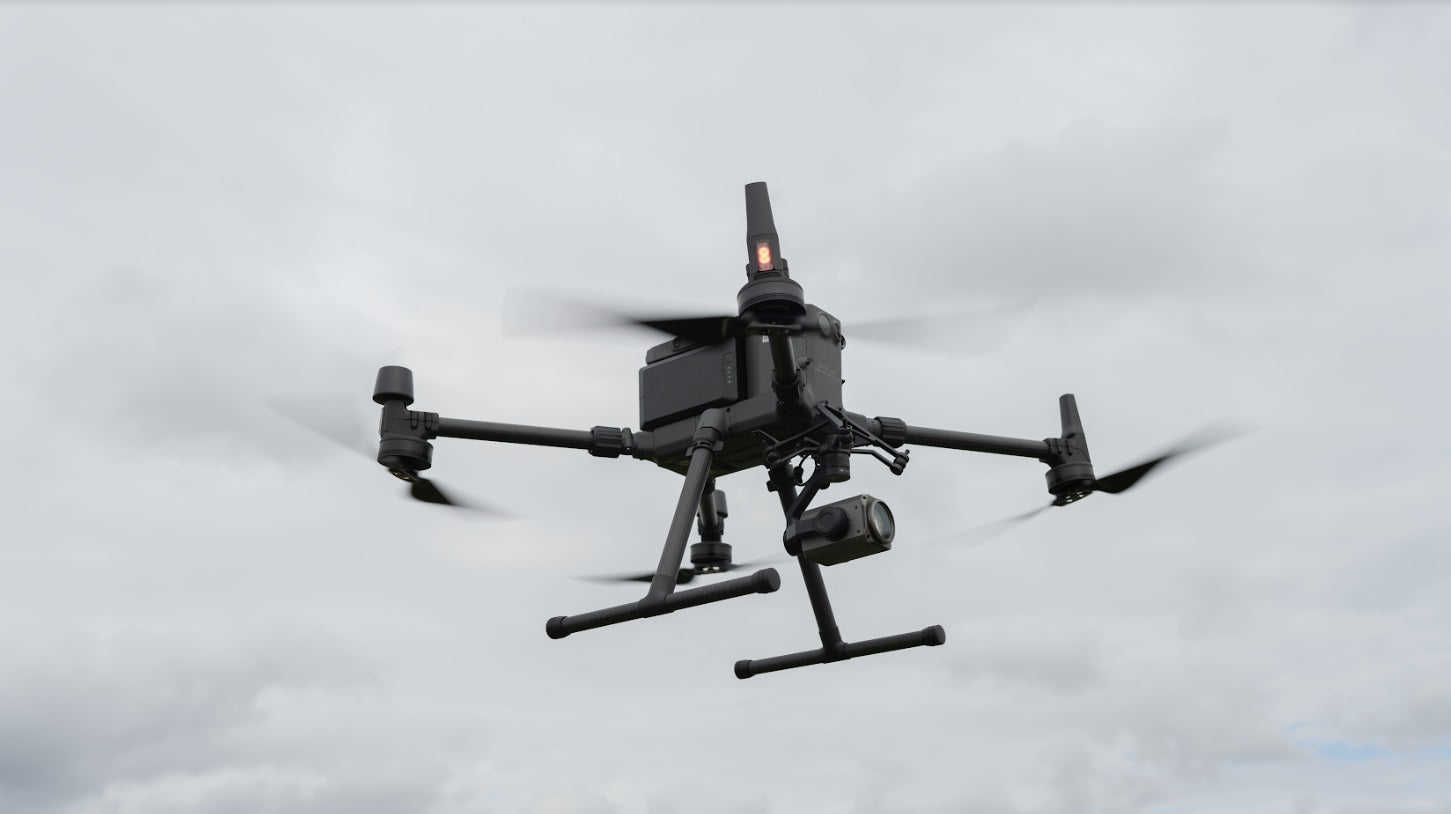
Whether it is the prolonged flight time, the ability to carry three payloads simultaneously, its enhanced IP rating, or sophisticated safety features, this drone is guaranteed to be on the wishlist for many businesses and organisations - whether they are starting their drone programmes or scaling them.
Then there's the H20 sensor series, worthy of a standalone launch. The H20T, in particular, offers a thermal, zoom, wide-angle, and laser rangefinder solution, catering for the majority of enterprise drone operations.
DJI has described the M300 RTK as a cyber workhorse, and it truly is; a versatile and reliable solution for enterprise, which sets a new standard for the commercial drone industry.
To purchase a DJI M300 RTK with HELIGUY.com, click here, or to talk to one of our expert staff about how the drone can benefit your commercial operations, give us a call or send us an email.

written by
James Willoughby
James joined heliguy™ in 2018 following a 13-year stint in print and online journalism, having worked on regional and weekly newspaper titles. He is responsible for spearheading heliguy™'s content strategy and social media delivery. James collaborates with DJI Enterprise's European marketing team to coordinate and produce case studies and helps organise events and webinars.